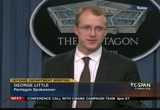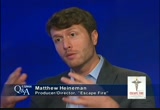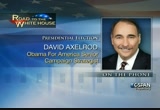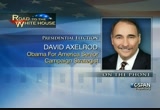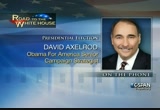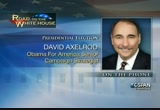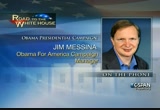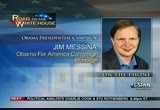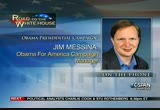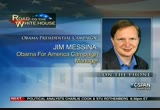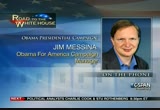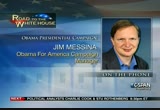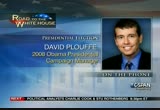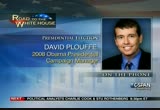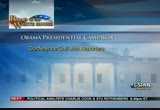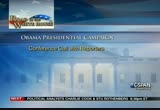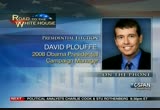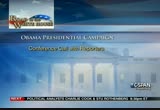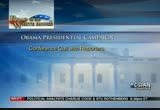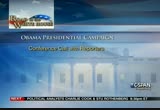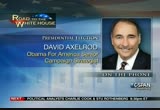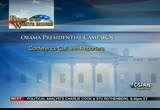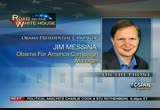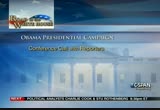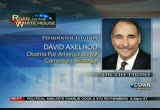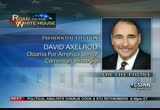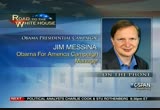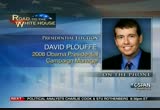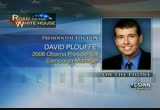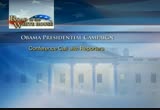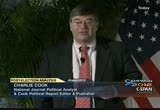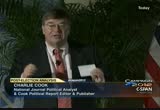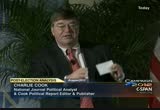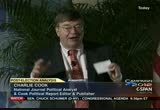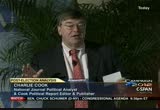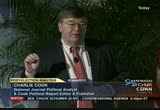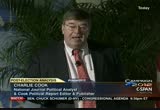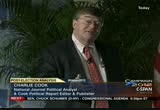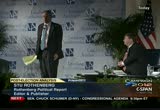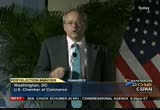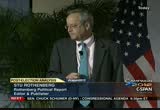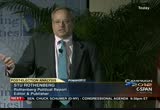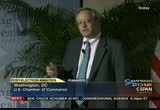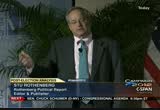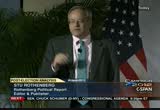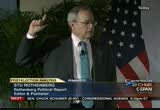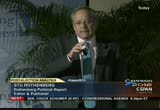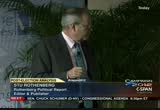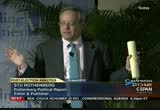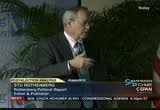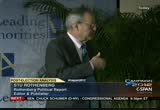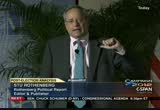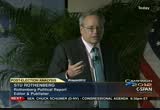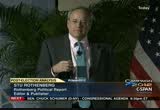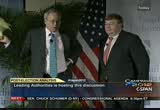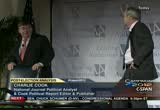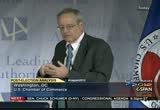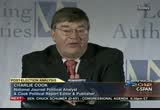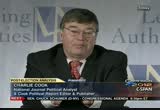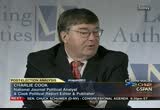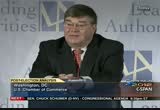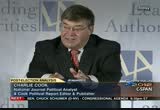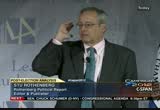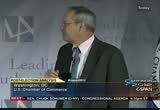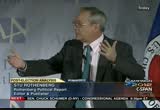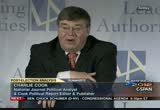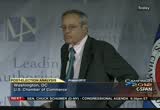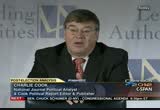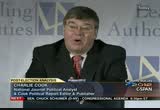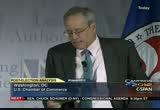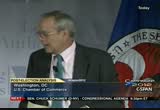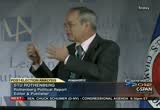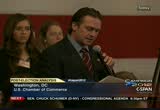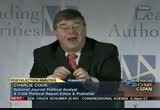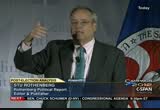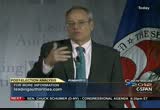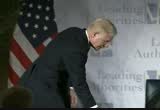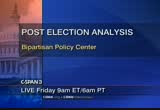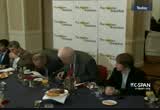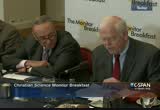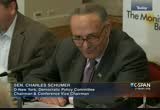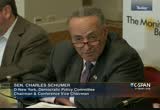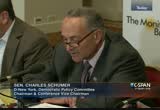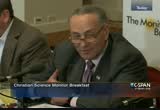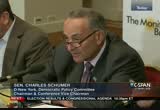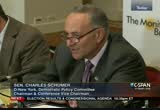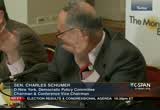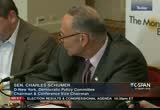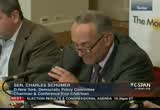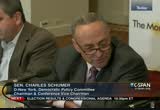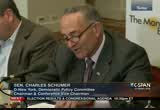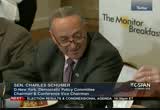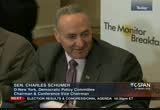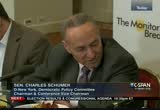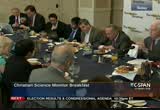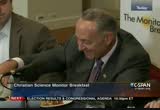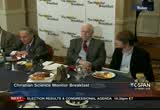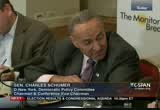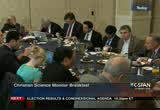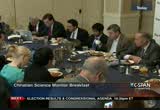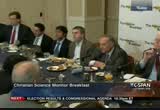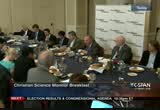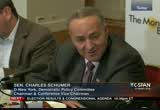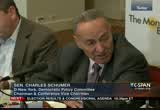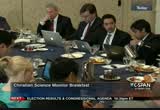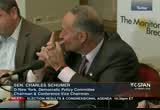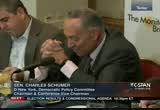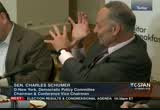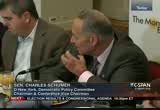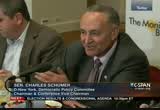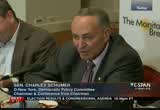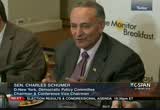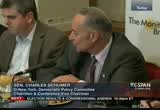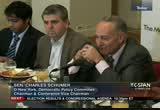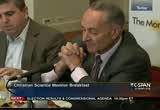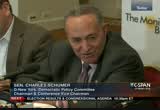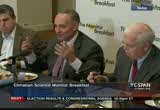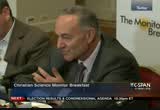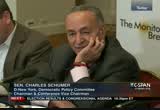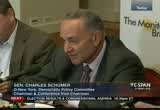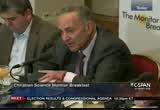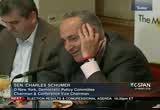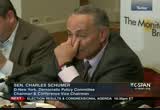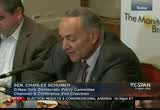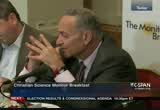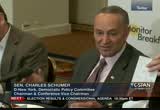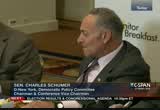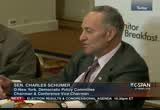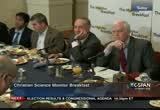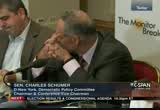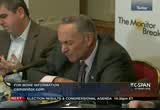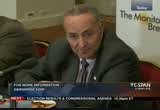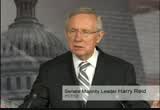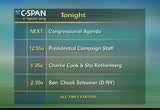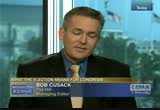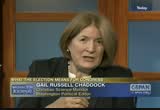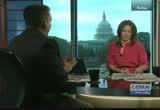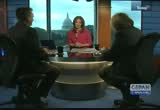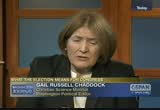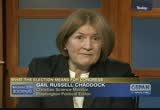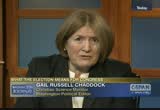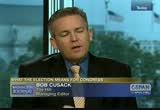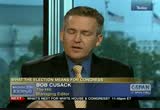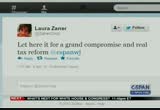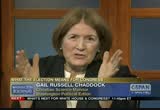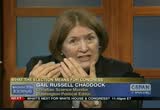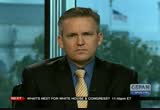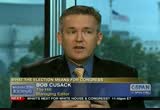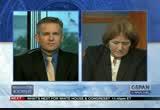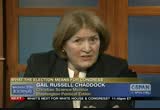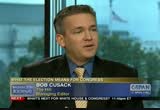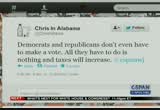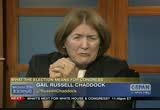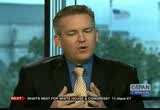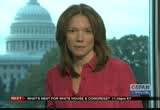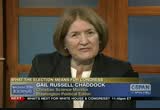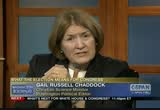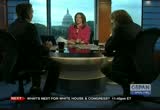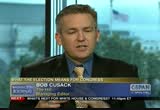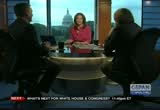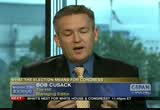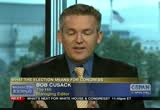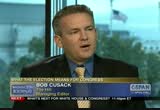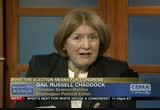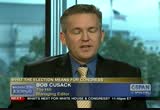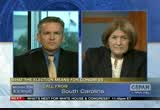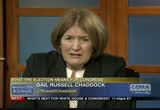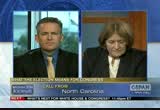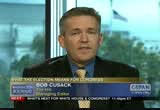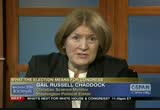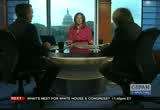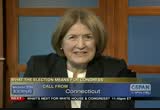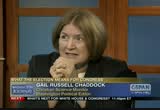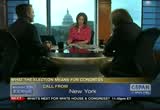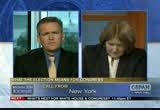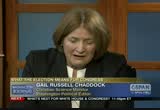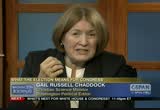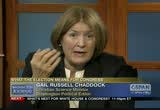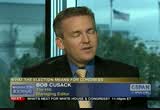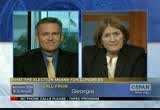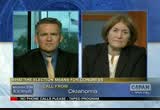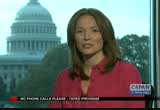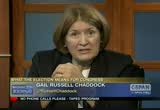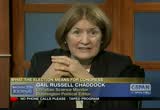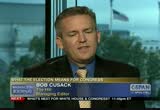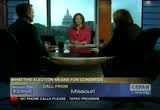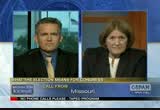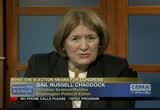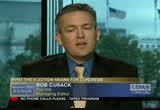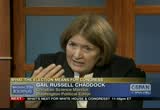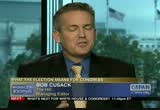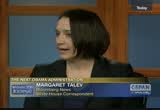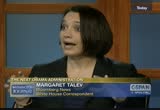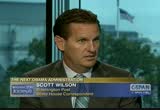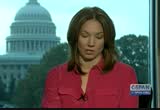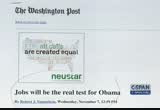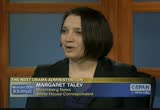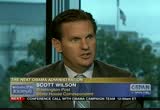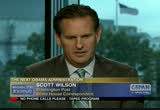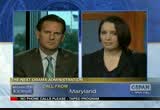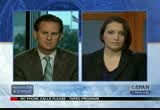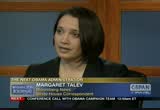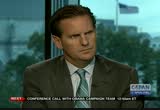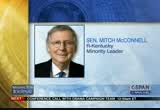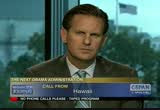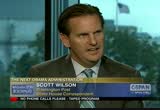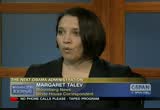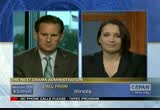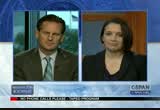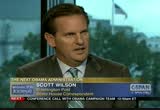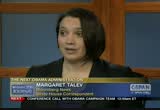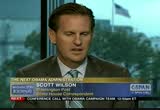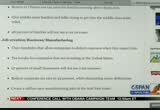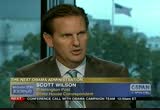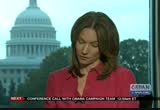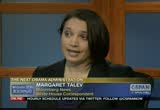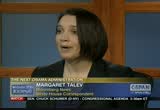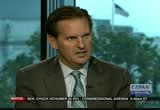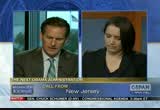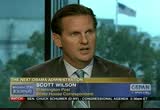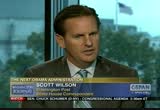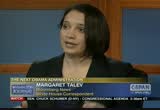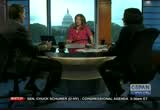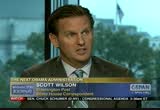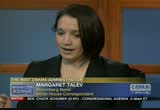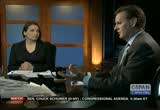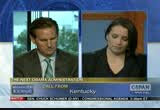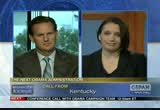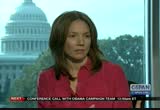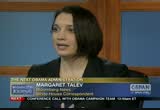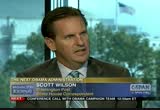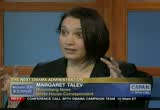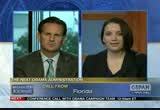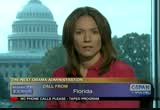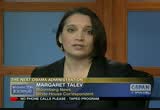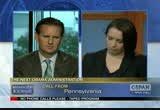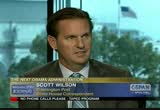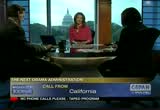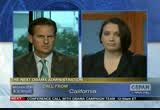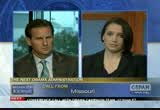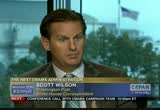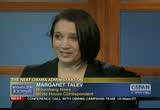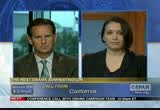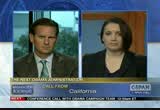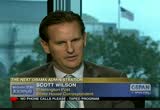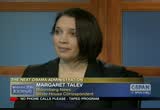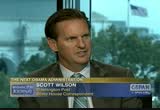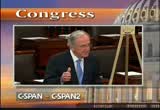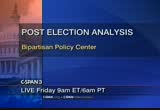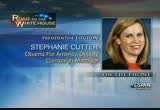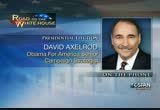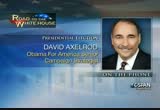tv Capitol Hill Hearings CSPAN November 8, 2012 8:00pm-1:00am EST
8:00 pm
it's time to wrap up. one last clarification and we will move off stage. >> the international waters over which -- did you say it was -- >> >> it is passed everyone else's review. >> we will have a final answer soon. the secretary is the final decision maker in matters like this. thank you. >> and a few moments, president obama'seens your campaign staff talks about election results. and have delmar, more about the election from political analysts charlie cook and stu rothenberg. then senator chuck schumer on the agenda for the upcoming lame duck session of congress.
8:01 pm
>> he does rolled himself out. he has taken 10 tablets. >> that is ridiculous. >> at some point he could stop breathing. >> where is sgt robert gates today? >> we ended up following him after this plane ride for many and he ended up injuring himself into an innovative program at walter reed, where they ended up using acupuncture, medication, and other techniques to wean him of all
8:02 pm
the drugs he was on, and for this program he actually was able to walk out of walter reed on his own 2 feet. i really commend the military for allowing us to tell the story, both the good and the bad, but for recognizing the problem, that there is the problem of over medication, and that they are looking for outside the box ideas on how to fix it. that is sort of the whole basis of the film, the status quo is not working and we need to start looking for outside the box ideas. >> sunday night at 8:00 on "q&a". >> now, president obama's senior campaign staff on tuesday's election results. he spoke with reporters during a
8:03 pm
half hour conference call looking at a voter turnout, the role of outside money, and at the state of the republican party. >> thanks, everybody, for joining the call today. we have heard from many of you individually. we thought it might be easiest to just do this:what are some things together. it has been roughly 36 hours since the race was called, and after some sleep, some celebration, and some thoughtfulness, we have had some time to reflect on what the election means and where rebel from here. we are going to just quickly what for some of that and then we will go to q &a. i will handed over to david axelrod to get it started. >> i have been reflecting on what happened on tuesday.
8:04 pm
there has been a lot of analysis about tactics, and there is no doubt that we had a game plan from the beginning, we executed well. that was reflected on tuesday. we have a bunch of very smart people, most of them non -- young enough to be my kids, who once again reinvented the campaign, as was true in 2008, using the new tools and all of them that are available to us. there has been a lot of discussion about demography and how that impacted on this election. there is no doubt about the fact that this president reflects this country in 2012. he put together a broad
8:05 pm
coalition that reflects the country, and that was important and enabled us to win. at the end of the day, these elections are not just about metrics, they are about people. this campaign was built on a sturdy foundation of the president's record, his values, his vision, his lifelong sense of advocacy that is familiar to people, and all those came in to play to building a victory that we enjoyed on tuesday. on the other side of the equation, i think the republican party has some soul-searching to do after this election. all you have to do is look at the nature of our coalition. the president got 56% of the vote among voters who describe themselves as moderates, and never the largest segment of the electorate.
8:06 pm
the president got 70% of the vote among latinos. he got 55% of the vote among women. that reflects both his record and also the approach of the republican party, which has been to paint itself way out of the mainstream. i will be watching with interest to see how they interpret these results and whether it forces more moderate forces in the party to stand up. there are a variety of factors and there's a lot to chew on in the aftermath of this election. i want to turn it over to the guy who really masterminded so much of what we did in this election. he did such a job as campaign manager, and he will go into
8:07 pm
more granular detail in what he saw as the results on tuesday. here is jim misener. >> hello, everyone, good to be with you. i want to start out by congratulating team romney for a hard-fought campaign. they were hard-working americans who wanted to make the country better and use the political process to do that. we wish them sleep and some time with family. i want to congratulate all the volunteers for what they did on election day. we had over 109,000 people can sing on doors, double that on the phones, and they executed a historic ground game. the reason they were motivated to do this it was not because of any analytical tools or tech product that we gave them.
8:08 pm
they were working to build this campaign because they believe in barack obama and his message and the policy he moved forward -- to move this country forward. that is what one in this election. across battlegrounds ge states,e are currently sitting at 50.4. i think we will get a little better than president bush's margin in the 2004 election. our margin over republicans declined about 3.7% compared to 2008. 5.3 in non battleground states. millions of ballots are still being counted, 4 million in california alone. sometime today we think we will be officially the winter in florida. -- the winner in florida.
8:09 pm
as of right now, total turnout and number of voters has increased in colorado, iowa, minnesota, nevada, north carolina, and wisconsin. it looks like it decreased in 35 of 49 battleground states. the total turnout may be higher in 2008 when all the votes are finally counted. as we plan 4, total minority vote share increased to 28%. our coalition turnout, women made up about the same% of the electorate as in 2008. we got if you got% of women voters. for lots of reporting about youth turnout, they continue to turn out and take control of their future.
8:10 pm
in virginia, we increased our youth percentage. in florida, boating rates increased to 16%, and we got 61% in 2008 and 66% in 2012. african american turnout and support was as high or higher than ever. in ohio, african-americans increased from 11% to 15%. we got somewhere between 9% and 97% in every battle ground state. 71% of latino vote, the highest percentage of latino vote since 1996.
8:11 pm
in florida increase from 14% in 2008 to 17% in 2012. we increased our vote share in florida from 57 to 60, which appears to be a high mark for any democratic candidate. for the first time since the revolution we won a majority of cuban voters in florida, which marks a dramatic realignment in policy for that state. in colorado, latino votes it increased from 13% to 14% and support increased from 61% to 75% in 2012. both the size of turnout and support level increased to historic highs in colorado. back to the message, we won self-described moderate, we won
8:12 pm
on medicare 52 to 44. 21% of voters said the most important thing was that the candidate cares about people like me. among those voters, obama 181- 18, which is a historic number. -- obama won 81-18. 60% of ward -- of the majority supported increase in income tax including a plurality that supports our position moving forward. 65% want to give illegal immigrants a chance to apply for status and 75% agreed the president's policy of moving
8:13 pm
forward favor the middle class. all those important lessons from 36 hours ago continue to make us feel good about what we have built. i will turn over to david plouffe to talk about some of the things we saw in the states. >> of david and jim mentioned a very important number, 56% of the moderate voters in the country supported the president. that is important. sometimes the independent voter question gives you a little bit of a false positive, because some of those folks are actually democrats are republicans. there are certain counties that really are bellwethers. a lot of them have a lot of suburban, moderate voters. loudon county in virginia, a
8:14 pm
quintessential suburban county. hamilton county in ohio, arapahoe county in colorado. that speaks to how well the campaign volunteers did a tremendous job. the president also showed a great appeal in these moderate, suburban counties. what is clear is his position on taxes, education, some of the social issues, really spoke to a lot of these voters. turnout in and of itself is critically important, what when you couple that with real appeal in these battleground states, that is one of the key reasons we won. that is important to understand going forward, those moderate voters pretty resoundingly chose
8:15 pm
8:16 pm
>> the president talked on tuesday night about how the responsibilities of citizenship don't in with this vote. howdy ho to translate your success on tuesday into governing -- how do you hope to translate your success in to governing in the next four years? >> we will have a conversation with our supporters. the president talked about all citizens being part of the process to handle the fundamental challenges facing us. we will go for a discussion with our supporters about where we go and what we do. the one thing we understand is that we want to stay involved here in the issues of the day and continue to be a part of moving forward in a bipartisan way in tackling these challenges.
8:17 pm
>> i guess this is mostly for david plouffe. how do you prioritize within the white house right now, in terms of dealing with republicans on the fiscal cliff, but also cabinet changes and any white house personnel changes? can you do them all at once, or do you need to work on a financial matter first corps of ?ark >> the president in the campaign it laid out his economic plan for how to build an economy, strengthen the economy. that is obviously a central focus of not just the next few weeks, but the next four years. part of that is to reduce the
8:18 pm
deficit in a balanced way. obviously we have some deadlines approaching. one of the messages sent by the american people throughout the campaign, as jim misener mentioned, clearly shows the president's view of making sure that the wealthiest americans are asked to do a little bit more in the context of reducing our deficit in a balanced way. it is clear that the voters did not be a compromise as a dirty word. it is essential for democracy. balance is another important component. hopefully in the aftermath of the election our leaders in both parties and around the country will do the right thing here to help move our economy forward. as the president often said during the campaign, we've got a lot more work to do, but we have made progress, and we have to build on that. this is one component of how we do that, moving forward.
8:19 pm
>> always curious, did you ever think michigan was seriously in play, given the president's tally being higher in michigan and in jordan or other states? >> we always feel very confident about our chances in michigan, because the president's unprecedented actions on of a recovery -- of a recovery, we did keep a strong round game -- ground game. we saw the same things you saw. >> we saw the whole industrial midwest as a bulwark for us, in part because of what jim said,
8:20 pm
because of the president's leadership in saving the american auto industry and what that has meant in this region, but also his commitment to the revival of manufacturing more broadly, and to the security of the middle-class, which is something that is deeply felt here. we felt governor romney profile was not a good profile for this region, even though he was born and raised here. >> next question, please. >> could you assess -- this was the first time anybody had to run a race with this much outside money. what ended up being the.
8:21 pm
and effect of it? >> that is a really important question. in some ways, the results were very heartening. it's all literally billions of dollars spent, not just to unseat the president, but to change the congress, to change the senate from democrat to republican, to hold and expand the republican majority in the house. as we stand here today, the president was reelected, there are more democrats in the house , and if i were one of those billionaires' funding crossroads and those other organizations, i would be wanting to talk to someone in asking where my refund is, because they did not get much for their money. one of the questions we will have to examine is, what with
8:22 pm
the impact of this unprecedented deluge of media, particularly at the end of the final week, more than $100 million was spent against us in these battleground states. how much influence did that really have? i think this is something that will be worthy of study, but just looking at the results, the hard news is that you cannot buy the white house. you cannot overwhelm the congress with these super pac dollars. i would think there will be reluctance in the future when mr. rove and others come knocking on the door because of what happened on tuesday. >> thanks for the call today. early in the campaign you
8:23 pm
pointed to the bennett senate race from 2010 and a potential model in colorado around appealing to latino voters and women. what do make of the exit poll data that shows a five point decline for the president's support among women this time around? >> i have not looked deeply into the colorado numbers, but among when overall, 55% of women voters, down from 2008. we felt good about what we built their, doing very well in denver and boulder. that has to do more with message than a dozen or ground
8:24 pm
game. colorado by four points favored the president's state wide. we carried moderate across colorado, and that says a lot about those economic and social issues that colorado voters care very deeply about. >> we have time for two more questions. >> i wanted to ask about the hispanic vote in florida. if what you said is true about the cuban boat, and there was an exit poll today in miami that shows you all winning 83% of the porter rican vote. in the past they voted republican. can you talk about what the shift toward the democratic party mean for florida as the biggest battleground state?
8:25 pm
>> the issues that latino voters care about are like everyone else, the economy, jobs, education. they watched the republican party in the primary use them largely as a football. marranos it -- mitt romney said he would veto a piece of legislation like the dream act, that makes it hard to go and get votes in november. it was as clear choice as any in generations on those issues. nothing that is one of the reasons why we got historic numbers with both of those communities. >> hispanic communities are
8:26 pm
aspirational communities. they are hard-working folks who want to build something for themselves and their families, and education is central to that, the ability to get access to health care is central to that. i think the president's sense of advocacy for working people everywhere, for 100% of the american people, and not just 53% of the american people, was something that resonated strongly in these communities. as i said in my initial remarks, the republican party is going to have some soul- searching to do as to whether they are going to represent the united states of america as the united states of america is, and not based on some 50-year-old
8:27 pm
model. >> operator, last question, please. >> in 2008, after the election, you famously left open offices across the country to keep your round game intact. what happens to that infrastructure now, and the think the ground game in the infrastructure you have for this campaign can be translated to whoever runs in 2016? >> thank you for the question. as we talked about earlier, we will go for a process with our supporters and have a conversation with them about what they want to do next. we have always listened to the ground game, listen to our supporters. part of the lesson of 2012 for us is let people run the kind of
8:28 pm
campaign they believe in. that is why the president's message resonate so well out there. we will have a process for our folks where we discuss the future. we will spend some time learning the lessons from the other night before we start thinking about 2014 or 2016. >> first of all, we are going to take our cues from our supporters, things got done because our supporters and americans across the country lifted up their voices. they will play a very important role. it you are not going to be able to change washington solely from the inside. that is what the president has always believed, that we need the american people to keep
8:29 pm
pushing on washington and their leaders. you just cannot transfer this. people are not going to spend hours away from their families and their jobs contributing financially when it is are for them to do it unless they believe in the candidate. all of this, the door knocks, the contributions made, the phone calls made, or because these people believed in barack obama. for candidates who want to try and build a grass-roots campaign, it's not going to happen because there is a list are because you have the best technology. they have to build up the kind of emotional appeal so people are willing to go out there and spend their time and resources and provide their talents because they believe in someone and what they are offering. we are hopeful that many people
8:30 pm
that helped us this time will end up running for office themselves, are leading nonprofit, or playing enormously valuable roles in their community. again, i think the only reason all this happened on the ground, we have remarkable staff and the campaign they put together is the best in history. the reason those people got involved is because they believed in barack obama. it was the relationship between them and our candidate. >> one last thing, we never thought of you guys as rooters. >> i think that is it. thank you all for joining us. this is our last conference call for the campaign. it has been a pleasure talking with you often, and i am sure we will have an opportunity to work together again. thanks.
8:31 pm
>> c-span invites middle and high school students to send a message to the president. let president obama know what is the most important issue he should consider in 2013, for a chance to compete for a prize of $5,000. the deadline is january 18, 2013. for complete details and rules, go online to studentcam.org. >> political analyst charlie cook and stu rothenberg on the election results. this is an hour. [applause] >> i looked up and i think, you know what? i really need to find -- maybe using chris christie's personal trainer was not a good idea. [laughter] anyway, thank you for coming. we always ask for whom the bell tolls for, and it tolls for
8:32 pm
thee. thank you for having as back. for stu -- leading authorities has put our kids in school and feed them and put clothes on them. wonderful job. fabulous speakers bureau. thank you. we have had one night of sleep. i tried to experiment this morning while shaving. i tried to put everything that was really important on one 3x5 card to boil it down. here are some actions. hopefully all of our thoughts will evolve and look more polished. to me, you look through somewhat this year and ask, what are the important things?
8:33 pm
we had an economy that was not supposed to reelect the president. when you have 43 months of more than 8% unemployment and look at the gdp and disposal income and house networth and poverty rate, this was not an election that was intended to reelect president. that was sort of how we started off the year. then we had one party that decided to require all of its candidates for the nomination to jump off an ideological cliff. that is punctuated by that february of last year fox news debate. they asked each of the
8:34 pm
candidates if you would take a deal that for every dollar in tax increases there would be $10 in spending cuts. not one hand goes up. you know mitt romney knows better. you know jon huntsman knows better. the other six -- [laughter] you know those two and the fact that two rational, reasonable, highly intelligent people concluded that to raise their hand would be to slash their throats for the nomination, that really tells you something. the third thing that was really important to me was that you had a campaign that decided not to define their own candidate. you think back to the romney campaign. they won the nomination very
8:35 pm
tactically. they raised more money. they destroyed their opponents one by one. they dismantled them. but they chose, even during the nomination phase, to never tell anybody who mitt romney was. as soon as it won the nomination, i think it was one rick santorum dropped out, they decided to focus on discipline. they thought any topic that was not on obama are the economy was not worth a dollar spent. is spent entirely until just before the convention on banging on the economy and the obama. to a certain extent, we have an incumbent president running for re-election, it is a referendum
8:36 pm
on the incumbent. it is a referendum on the economy. but the thing about it is, you have got to define your own candidate in a way and a positive way biographical advertising and testimonial advertising. you need to make them a real, three-dimensional, trustworthy individual. think of the boy scouts. that is a general idea. that is a general thing you want to get across. you need to apply that to your candidate in order to protect them from the slime that is coming. in the romney campaign, they adamantly chose not to do that. the obama campaign, give credit where credit is due, they saw their opponent was undefined.
8:37 pm
i sat with some focus groups. other than a romney was a republican nominee for president, rich successful businessman, maybe one added to all would know he was a mormon. other than that, they knew nothing about the guy. the obama campaign comes in and takes a baseball bat and basically beat his brains out. in the swing states, he never recovered from that. even when the first it happened, even when his numbers went up and all 50 states, they go up less in the swing states than they did in the other 40 something states. that made a huge difference. then you saw that one campaign chose to have a fabulous job of
8:38 pm
get out the vote. both sides tried. the romney campaign did a lot. to me, campaigns are evolutionary on the two sides. look back to 2004. matt dowd, they put together a fabulous state of our campaign in 2004. republicans really got it. howard dean revolutionized the use of the web. john kerry went forward on that aspect. but boy, the bush campaign had it going. in 2008, the mccain campaign was up and down. the organization after its, what they had in 2004 was lost in 2008.
8:39 pm
it had to be rebuilt by the romney campaign, but only after their able to get the republican nomination in april. it was late in part because of super pacs, which kept the process going much longer than it ever normally goes. as long as you and i have been watching this and before that, when a candidate started losing primaries, other donors close their checkbooks. you run out of money and you drop out of the race. what is happening is, they kept gingrinch going for a while. the process went longer and longer. romney had to go so much further and longer -- here is a guy who is probably by nature -- when we met for him when he ran
8:40 pm
for the senate in 1994, that is where he was. he has to run so much longer and further to the right than he ever dreamed and in part because of the super pac effort. then you had -- i guess the final thing i would say is having the economy kind of -- i do not think we are seeing a big economic turnaround, but we have the stock market moving up. we had consumer confidence that is now one measurement of that eight month high. the housing sector is showing signs of life. most importantly, consumer confidence is in the right direction.
8:41 pm
it is a little better. we are seeing the percentage of people who think the economy is getting better has moved out. all those things together, we got what we got. before the election, i put together a sequence of states of what romney had to do. when you boil it down, yes, you look at 50-48. it's a close race. romney ended up winning all of the mccain states, but indiana. north carolina barely in. and that was it. look at the sequence of states where after north carolina, we have florida on the edge, but it looks a little bit more likely
8:42 pm
to go obama. florida, virginia, iowa, nevada, ohio what i put him over the top. he did not get anywhere near the progression. there are a lot of things going pondweeds, but the most important thing is that republicans is that they need to do something about their brand. it is basically the center of the republican party is older, white men. that is not where this country is going. when you look at african- americans, latinos, the fastest-growing group, asian. and the obama got 71% or 72% of the asian vote. the future does not look like the republican party.
8:43 pm
if i were the republican party, they will have to do some real soul-searching about immigration, social and cultural issues, because this is not a party design for the future. if this were a business, you would say they have an inherently flawed business model for the future. the republican party, they have four years they need because they are coming out for some candidates that are awfully exotic. [laughter] my wife got me to stop using the term "wacko." not only do they take themselves down, but they define their party in a way that keeps people who ought to be able to win from winning.
8:44 pm
here is one last comparison. think about moderate republicans, the kind of people they need to be nominating more and more. think about the moderate republicans that ran on tuesday in blue states. think of scott brown, the former governor in hawaii, heather wilson in new mexico. they could not win because of their party's brand. heidi won. joe donnelly won. this is a one size brand contaminates all other candidates, even the ones that have no ability whatsoever in some of the exotic party.
8:45 pm
yeah, we are going to hear a bunch of people with iq's lower than room temperature say that mitt romney lost because he was not conservative enough. but i think after republicans go through their seven stages of grief, they can get to a point where they can make some changes if they will be a party for the future. >> thank you, charlie. we enjoy being here. we're trying to say something that is interesting and thoughtful and novel hours after the polls close. i hope i come close to what he said. i really wanted to come out here. i really wanted to come out here and say -- i just heard what charlie said. there is not one thing i agree with. he is absolutely wrong about
8:46 pm
everything. i never say that. we always agree. [laughter] we are in general agreement on what happened. politics is so much about expectations. expectations changed out the cycle at various points. if i told the we were going into election day and it was a -- you would have been surprised. before the first presidential debate -- after bill clinton walked out on the stage of the democratic convention and looked out to the audience and the country and under those famous words, "even i, even i couldn't fix the economy in four years."
8:47 pm
in his humility and honesty, it was a decisive event. i remember what happened with a 47% and the romney tax returns. it was at that point in the end of september and beginning of october where people thought the race would be over. after the first debate -- right before the election, we look back and say, wow. i am surprised we were in a close race.
8:48 pm
the president's negatives were up. job reports were down. how could he possibly be re- elected with unemployment numbers like this? when you evaluate where we are now, the prospective changes when you think of where we were at various points. it was a strange election with ups and downs and twists and turns. it was a crazy election year were many of us pendants and political analysts were wrong. >> speak for yourself. [laughter] >> i said i wasn't including you. this is a race where herman cain led the republican race for 10 days. nobody expected the convention to be decisive.
8:49 pm
there never decisive. there are orchestrated. they are planned. it is at the country music awards. we have the first debate. people said the debates do not matter. the first debate is decisive. it redefined mitt romney. what happened is -- and charlie is right. the president's campaign was right in the defining romney early on. they defined as a rich guy who was out of touch. he did not have a plan and there are no specifics. he was artificial. the problem in the campaign's, when the voters get to see the candidates, and in the debates that people feel like they are seen the real person. the way that romney appeared was not the way he had been defined.
8:50 pm
it was a race that ended close to a tie. that wouldn't be shocking. yet, if you are a republican voter -- >> right there. >> he is a former party hack. if you are a republican voter or sympathizer, you do not have a pleasant taste in your mouth after the election. we-we had mixed results. republicans continued to hold the house and the senate-the
8:51 pm
democrats holding the senate. mitt romney made significant inroads among many groups. not all groups, but many groups. young voters, up white men and women, a number of constituencies and proving their yet there was a feeling that it did not go well. if you are a democrat -- a lot of this is about expectations. we have had three way the elections in a row. the thing we can agree upon is that this was not -- it seems this was an election where the basis held. the broad divisions that american would have liked became apparent.
8:52 pm
what does this election about? look at the congressional level and the presidential level. their word two abroad a different use of government and whether it was-their word two, a broad, and different views of government and whether it was helpful or hurtful. whether to let the free market work its magic and create jobs and opportunity. there's also the nitty gritty part of the campaign. the early ads in a swing state to get out the vote. on the broad themes, the presidential race was about. it showed a slight advantage to the democrats.
8:53 pm
that has to do that demographic shift. i remember when i came to washington. i remember writing an article for it -- remember that? public opinion magazine? >> yeah. >> on the electoral lock. i think you will see people start to write about a democratic electoral lock due to the changing demographics. we are seeing an electorate where the democrats are doing well among african-americans, hispanics, asians, younger voters, and white liberals. now that needle appears to have moved slightly to the democrats, so that if you have a kind of normal base election, the democrats have a very slight advantage. i think most people say we will continue to grow over time,
8:54 pm
unless the republicans do something to make inroads into some of the court demographics. if you look at the house races, you have to be cautious about the big message you are drawing. yes, the democrats gained what looks to me by my count about eight house seats. half their gains have to do with coming from illinois and california and are largely redistricting gains. but republican still control the house. what would you say was the democrats' message this election cycle, in terms of the issues are policy? they talked about republican extremism but, what is the strong message that the congressional level?
8:55 pm
it was two-pronged. one, medicare, and two, the ryan budget. medicare is one of the examples, and the right and budget shows different priorities, and republican parties are wrong. that message did not really work. it was not a decisive win, certainly at the house level, for that message. my editor mentioned this to me as i was going out the door last night. we had three major house special elections over the last couple of years. one in pennsylvania, mark critz won that one, one in new york when chris lee, he of sending
8:56 pm
photographs, left office in upstate new york, was replaced by democrat, and the third when the arizona seat opened up after congresswoman giffords stepped down after that horrible shooting, she was replaced by congressman barber. the democrats won all three of those special election, and indeed to every case, they said they won because of medicare. that is what it was, medicare. then what the democrats said was, and we are going to use that as a template for winning the 2012 election. it didn't work at the congressional level. when you look at the exit polls and see why people voted in how they voted, times it is not so simple. the exit polls have some very
8:57 pm
strange results. is the country headed in the right direction are seriously off on the wrong track? right direction, 46, wrong track, 62. keep that number in mind, wrong track, 62. what kind of job has barack obama done as president? approve or disapprove? the approve its 54%. did you notice that? 54%. i have not seen a 54 job approval for the president in a long time. 52% of the country thinks the country is headed in the wrong track and 54 approve of the president's performance. but those numbers together. another question was significant for barack obama and it hurt mitt romney. who was to blame for the current economic problems? they gave a choice, the
8:58 pm
president or george bush? 38% said president barack obama, 53% said george bush. this goes back to bill clinton. folks, it and i could not have solved this problem. it's all george bush's fault. i think the president and his team and the democratic party got a lot of mileage out of the bush years and out of what the public concluded was george bush's failings or shortcomings. you don't have to agree that he failed are had shortcomings, i am just telling you what the public thinks. that is what matters now. but i think the lesson coming out of this election -- i think charlie is right, the lesson coming out of this is that the public now is inclined to say
8:59 pm
to the democrats and republicans need to do something to change their message, to change their reputation and image. i think generally, charlie is right with what he said about the republicans being extreme and too ideological. i think that is certainly true. it is also the case that republicans have another problem. the democratic base has a particular world view and a set of assumptions and values that increasingly in a polarized environment makes it difficult for them to vote for scott brown and heather wilson. the problem with the republicans -- they have some very ideologically driven voters, but part of the republican base is more open to voting for democrats than the democratic base is to vote for
9:00 pm
republicans, i believe. that even example. -- let me give you an example. heidi is a terrific candidate in north dakota. mitt romney one north dakota by 21. and i was able to overcome that. -- and heidi was able to overcome that. it is true that the president won north dakota slightly less than -- mitt romney won north dakota at slightly less than the president won massachusetts. but the republican coalition includes kind of a soft swing voter that is inclined to vote republican, but as more willing to vote for democrats. john barrow in georgia, the republican candidate was horrendous. a challenger refused to debate the incumbent. [laughter] i didn't say it was a bad decision, i just said it says
9:01 pm
9:02 pm
i think in the short term, you are seeing some immediate republican flexibility on taxes and on dealing with sequestration and the fiscal cliff. i talked to one republican media consultant the other day he said, you know, i think there's a chance that if obama wins comfortably with the electoral college and the underperform in the house or the senate, and clearly the republicans underperformed in the senate, every tossup race with democratic, just as charlie said, every swing tossup state went democratic, magnifying the outcome. if something like that happens, i think republican folks will give a little bit on taxes, because republican members of congress are just tired of being hammered for being for millionaires and billionaires.
9:03 pm
it looks as though the election goes against us, i think they will give ground there. so in the short term, i think there is an opportunity to address some of these issues, including the large defense cuts and across-the-board cuts and deficit issues in short term. but still, count me as a skeptic in the long term, on the bigger question of taxes and spending and entitlements. because the way the political system has developed, the way the parties are, tuesday night we are all in this together, boehner comes out the next day, yes, we can work this out, but over time, the reality is still up to very different parties with very different values, very different constituencies, and when republicans starts to get to squishy or a democrat starts to move to the middle, they get pounded on. shawn hannity, rush limbaugh, and shultz, and rachel maddow. i started seeing earlier, getting e-mails from the pccc, which is the progressive change
9:04 pm
campaign committee, which saw the success of 2010 on the right and said we could do the same thing on the left. there is just more and more movement on the extremes, demanding in the party faithful to stay faithful. we still have primaries and republicans have to figure out a way to avoid todd akins and richard mourdocks. there is no increase in the christine o'donnell vote, the witch vote. the republicans had five seats in the last two cycles for the have sacrificed a seat by nominating sharon engle and christine o'donnell, and now the two this time. republicans are going to have to figure out how to do this. they are attacked as washington trying to tell folks in individual states to to nominate. they don't get involved, they don't play a role, and they just have to watch outside groups come in and give them lousy nominees.
9:05 pm
so i do think the republicans will be going through some soul-searching, trying to figure out how they can appeal to african-american, asian, and hispanic voters. mia love got a prime-time speaking slot in the republican convention. an african american woman, a haitian immigrant. and she ends up losing. so the party clearly is going to be looking for other, new candidates. i will not talk about 2016, but you have to think that bobby jindal will continue to be more and more visible.
9:06 pm
9:07 pm
with a slight advantage. having said that, this is a crazy political environment. a lot of the political rules have been thrown out. more than anything else, i'd advise you to expect the unexpected. not just the next two or three months, but the next five or six years, until the country does decide one way or the other that it is going to choose between two grand visions. i will stop there and we will take questions, comments, or arguments. [applause] >> i just wanted to add one thing. which comes closer to your view, governments should do more to solve problems, or government is doing too many things better left to business and individuals? governments doing too much, government doing too many things better left to business and individuals.
9:08 pm
the responses from the public, government should do more to solve problems, 43. governments doing too many things better left to business and individuals, 51. if i gave you that question, we do not think that mitt romney would have won the election? but a quarter of the people who said the government is doing too many things better left to business and individuals, a quarter of those people voted for the president. >> it is a quarter after nine. we will go until quarter of 10 with questions. the conventional wisdom is that washington is dysfunctional and relationships don't count as much as they once did, but it
9:09 pm
was sort of amazing to look at the electoral map from alabama to texas and texas up to montana, and that was a solid red. look at stake like oklahoma where two-thirds of the voters voted for romney in massachusetts were two-thirds were for obama. it is hard to believe how we are going to get there in terms of compromise when the voters in both states represented by republicans and by democrats in their states are so partisan. >> yes. >> i was talking during the practice with someone about when you create these ideological echo chambers in each party, it just makes it very, very difficult. it sounds like a good chance that nancy pelosi is stepping aside. we don't know if steny hoyer is going to move up or if they move down to a generational thing. could either one of them make a deal stick within their caucuses? even if mcconnell and reid both
9:10 pm
tried to put something together, they have some exotic people on their side. you are absolutely right, and then toss in one more factor. you've got all the dysfunctional capitol hill, and then you have a president that basically has no relationship whatsoever with congress on either side. virtually no interaction with members of congress. wow. >> i don't agree with anything charlie just said. no, i agree with everything he just said. the key may be whether the president shows decisive leadership. i don't think decisive leadership necessarily is what he showed a lot of the time in the first term. not that he did not show any leadership. he did not get his hands really dirty. the public option fight we had, if you send it to may i will sign it. he let nancy pelosi take the lead on the public option, and
9:11 pm
on a lot of things. we knew what he preferred, but he did not twist arms. he just did not seem to get involved in the details. is he going to do that now? if he does that, is he going to just -- "well, i got a second term, we pick up seats in the senate, so now the republicans have to come to me." real leadership is going to your own party and saying i am going to bring you along. he has more sway in his own party than he will telling michele bachmann what to do, or telling ted cruz what to do. he is limited to what he can do, just as john boehner and democratic leadership are limited by the broader environment.
9:12 pm
9:13 pm
that is a drive from washington d.c. to tampa, florida, where they had the republican convention, to charlotte, fort bragg, back to charlotte, washington. that is 26 cd's. [laughter] but i have this image of lyndon johnson spinning in his grave at the idea that there is the president of the united states that has minimal interaction of congress, especially some of his own party. let's just forget republicans and tea party people. forget them. just in his own party, wander
9:14 pm
around the hill, as all of you do all the time, and ask democratic members of congress, how much personal interaction do you have with the president? i hate giving political credit for anything, but they have that piece back in may that pointed out that the president, as of may, had not had a single conversation this year with the their kent conrad, chairman of the senate budget committee, where tom harkin, phone or in person, this year. now, you could talk about the party obstructionist, this and that, but if you are not talking to keep people in your own party. i checked with the unofficial historian of the contemporary presidency. the president played golf 104 times. the know how many members of congress have played golf with him? two. that is it. there are 40 basketball games that are known, and there were 10 members in one game. that is it.
9:15 pm
there are democratic house offices of not freshmen and sophomores that have never had a single white house official walk across the threshold. let's say the president is 100% committed to getting a budget deal through, a grand bargain. but you have to ask yourself, even if his intentions are absolutely the best, and even if he is absolutely committed to it, he is going to have to change the whole way operates, 100%. a democratic lobbyist friends of mine says the model of the white house seems to be, no new friends. i am a long-term optimist and a short-term pessimists. but we will see. >> bill clinton wants any new friend he could find, and that was part of the reason he was so successful politically, and this president has a different
9:16 pm
way of operating. >> i caution you on deriding herman cain. if he could do 10 days, don sweeney could go the distance, and i will give her my check right now. obviously the republican grant is not working, or is a different version of the brand being resented that is allowing republicans to basically control most of the state. what do you think the differences? >> distance from washington and
9:17 pm
distance from the national party. you can obviously look at any election and a number of different ways. republicans could take some comfort in knowing that romney lost 50-29. a couple of months ago, out of 11 swing states, republicans carried one. he basically one what john mccain won, plus indiana, which nobody considers a swing state, plus north carolina. you go one out of 11, then you have the senate tossup. republicans lost nine out of 10. i think senator cornyn and all the folks -- one of the more talented campaign committees i have ever seen. two cycles in a row, they have
9:18 pm
had the worst loss. when your party nominate people that are so exotic that they have little or no chance of winning general elections, that ought to be very winnable, that is not something campaign committee can do anything about. you have party bosses from washington dictating who are candidates are going to be, or do you allow yourself the diversity of a bunch of wackos? >> a whole bunch of these
9:19 pm
republican governors were elected in 2010, which was against barack obama, the stimulus, the takeovers. no matter how partisan the state, they will send the opposite party to the state mansion, but they will not send them to d.c. even bob ehrlich one in maryland, and democrats get elected governor -- sullivan in wyoming, sibelius in kansas. republicans don't want to send a democrat to d.c. and democrats don't want to send a republican to d.c. in 2014, they will probably be running against fatigue of the second obama administration. >> take a look at how close it was in indiana. four points. >> it should have been 12 or 15. >> a big article in the washington post today about expenditures. what do you think?
9:20 pm
>> you are asking me that here? i looked at the article. there was so much money in the political system. of billion dollars in tv ads. first of all, there's the question of the quality of the ads, but then the question is just the sheer weight of the ads. there were so many ads and so many states, what moved the election? the debates, it was a news event. maybe the hurricane. was not the ads. that is my view. >> las vegas was passed the point where they had had their 73,000 th tv ad. some of the obama field offices never close sector 2008. the saturation level of advertising, in swing states you had two kinds of people. the people that literally hit the mute button every time a political ad came on, and the people who mentally hit the mute button every time a
9:21 pm
political ad came on. >> romney was pretty far from an ideal candidate, and it sounds like the president's approval ratings were on the upswing. congress's ratings if not at a historical low, are pretty darn low. there was not a lot of turnover in the house. is there reason we did not see more turnover in the house? >> rather than have voters pick their elected officials, you have elected officials picking the voters. the redistricting process has successfully insulated so many members of congress where the only re-election concerns that have are winning their own primaries next time. when the primary concern you had if you are a democrat is looking over your left shoulder, worrying about a primary next time, or if you are republican, your biggest reelection challenge is looking
9:22 pm
over your right shoulder anticipating a possible conservative challenger in the next primary. for most of these people, it is hard to imagine what that might have to do to lose re-election. it would involve barnyards and animals. >> more exotic. >> i no longer look at congressional approval. i think it has no relevance to elections. i don't know why that ask the question anymore. >> many lost on the basis of redistricting. >> not going back to your district makes a difference. >> part b, the only way you get 12% congressional job approval or 10% its if republicans and democrats give low ratings to the institution. but that does not mean republicans are going to vote against republican candidates. republicans blame the democrats and democrats blame republicans.
9:23 pm
9:24 pm
party of grumpy old white men. what is the path forward, particularly related to the hispanic vote? >> i think of myself as sympathetic with the business community. i think the business community as not taken a leadership role on the immigration issue, and finding realistic, reasonable compromises and selling it within the republican party, and getting some of the more exotic opinion leaders and top radio people to shut the hell up. when you are in a whole, stop digging.
9:25 pm
the republican party needs to, number one, addressed the immigration issue and stop alienating latino voters. i don't think we are ever going to see any appreciable number of order ricans ever voting republican, but with mexican americans, as mexican-american incomes rise, their willingness to consider voting republican
9:26 pm
goes up. yes, when you have leading voices in the party -- if you were going to say what were the two worst decisions mitt romney made, one was the auto bailout, the second was immigration. compounding what he said during a primary last summer, when he spurned marco rubio's dream act compromise. that is number one. no. 2, just shut up on social- cultural issues. they need to deliver the message in private, quietly, and get the heck away from that.
9:27 pm
how many times in the course of a year do all of you hear someone say, well, i consider myself as an economic conservative, but -- and you fill in the rest of the sentence. there is a boatload of voters that the republican party is basically pushing away. that mentality lead you to people making the todd akin and richar mourdock kind of statements. it encourages the kind of talk that in normal society is absolutely unacceptable, and you cannot have that. >> i think it is a little harder than what charlie is suggesting. should your state recognize same-sex marriage? yes, 49%, no, 46%.
9:28 pm
think of what the response to that would have been 20 or 30 years ago. the problem with republicans is, a huge chunk of the party is culturally conservative, religious voters. turnout is really important. getting the base energized, enthusiastic. i think the republicans are caught between a rock and a hard place. they need to somehow be seen as more tolerant on these issues, but i don't know how much wiggle room that have. on hispanics, i would have liked to have seen if it would have made any difference if marco
9:29 pm
rubio had been on the ticket. >> that's like saying i want to suck up to the irish vote, i will get an englishman. [laughter] >> it would have at least conveyed the sense of a broader republican party. that did not convey a sense of diversity. republicans are knee-jerk inherently opposed to diversity. they have a knee-jerk reaction to that. i think the party needs a
9:30 pm
different look. these different spokesman out there. cubans, mexican americans, of course, but they need to present a different look. >> among the political phenomena that intrigues me the most is ticket splitting. i wanted to get your thoughts on that. just looking at some of the results, montana elected a democratic governor, democratic senator, and the president only got 42%. in missouri, nixon and mccaskill, but democrats, got 55% and obama tops out at 44%, and lost every county except jefferson st. louis and st. louis city. west virginia, they elected a democratic governor and senator with 61%, and yet the president
9:31 pm
talked out at 36%. i just wanted to get your comments on that. >> you've got three different things than two different situations. in missouri, let's face it, todd akin contaminated it. in places like montana and west virginia, you have democrats that could have told you on january 1 -- could have told you four years ago that president obama was going to be a liability in my state, and i am not going to have to -- there never will be any lack of distance between me and him at any point. it is not like they have been cozying up to him and then --
9:32 pm
the picture that republicans had of joe manchin and president obama together, there is only one reason they could get the picture, because they had to be at the same funeral. that is the only reason that picture even existed, because there is not a second picture of them together. so these guys had a lot of notice to create a lot of distance, and rebel to do it. >> i have other examples i could give you. in massachusetts, a pro gay marriage, pro-choice, fiscally conservative moderate republican lost, i expect, because of party-line voting. scott brown could not run far enough ahead.
9:33 pm
when john tyrannies wife's relatives, a significant number of them are either under investigation, or indictment, maybe even more, it is stunning. in the chris murphy district in the northwestern part of the state, a pro gay marriage, pro- choice, moderate republican said of want to be the test of whether there is room for and they role for the old style, moderate republican from the northeast. he lost 52-48 in a competitive district. there was some ticket splitting in those, but not enough. i think there were more of those districts.
9:34 pm
>> the trend is the opposite way. you can always find examples that are counter to the trend, but the general trend is that we are voting in a more parliamentary way in this country than we used to. >> unfortunately, our time is up. i would like to thank charlie and stu very much. [applause] i would also like to thank the chamber for great partnership, and to our sponsors today. if you could, please fill out that survey. on december 14, leading authorities will host our final conversations at the newseum, and the topic will be the fiscal cliff. thanks very much, have a great day. [captioning performed by national captioning institute] [captions copyright national
9:35 pm
cable satellite corp. 2012] >> been a few moments, senator chuck schumer. in about an hour, a look at how the election results will affect the congressional agenda and the relationship between congress and the white house. president obama's senior campaign staff. later, we will read-air the election discussion with political analysts. several live events to tell you about tomorrow morning. a form on national security issues facing the u.s.. that is on c-span 2 at 9:00 a.m. eastern. also, a forum hosted by the
9:36 pm
bipartisan policy center. >> i want my -- to be intensely journalistic because unless you get out and look at what is going on, these days, you will miss the things that are influencing yourself and everybody else. >> best-selling author and drove arrest is live -- author and journalist is live. he will answer questions from the miami audience, sunday at tv. p.m. eastern on booked t >> new york senator chuck schumer. the vice chair of the democratic conference, hosted by the christian science monitor, to
9:37 pm
talk about the election, and the party's agenda. >> thank you for coming. charles schumer. his last visit with the group was wait too long ago in 2006, when he had just led the democratic senator campaign in efforts to boost the democratic population. readers of the almanac and american politics know he is the all model of the social justice group. our guest graduated from harvard college and harvard law. he was the youngest person since teddy roosevelt. he was elected to the house. in 1998, he was elected to the senate for his twice-won reelection by comfortable
9:38 pm
margins. on to the thrilling matters of the process. we are on the record. please, no live blogging or tweeting. there is no embargo. when the session ends. c-span has agreed not to air the video of the preface or post the video until noon today to give those of you who pay for the breakfast the time to file. please do the traditional thing and send me a non-threatening signal. our guests will have the opportunity to make opening comments. >> thank you. >> thank you, dave. thanks for the introduction. i just learned we have four nobel laureates. at one point, we had three u.s. senators, each of a different party. that is probably a historic first. that is myself, bernie sanders,
9:39 pm
and the republican party. when i went to minnesota to work for amy in the fall of 2006, i said, there were three madison high school graduates in the senate. i hoped to make it two. that is what happens -- to morto more. that is what happened. i think the voters sent us a message to work together and solve bipartisan issues. they sent a signal as to what bipartisan compromise should look like. in terms of our fiscal cliff. first, the signal to work together. you have an election where the house basically stayed the same as it was, and you had the president win a decisive,
9:40 pm
overwhelming victory. in the senate, we pick up seats. that is obviously saying, work together, meet half way, come together. neither side totally ran the table and got every part. second, on the fiscal cliff, it also sent us a message that you can discern, without too much difficulty. they said, when they sent -- what if the house republican party stand for above all? cut government spending. reduce government spending. the house was reelected. on the democratic side, they sent a message that part of the fiscal compromise should be revenues. the president campaigned up to the last day, one of his major planks of his platform was revenues come raise taxes, or do
9:41 pm
not let taxes go down on the wealthy. most of our senate candidates campaigned on that as well. in the debate, mitt romney after -- actually shied away from the republican position of not to do it, as you saw, particularly in the second and third debates. it is clear they said, go to a compromise, get a handle on spending, but ready some -- raise some revenues, particularly on the wealthiest people. many republicans were hoping, they said, this election will be a rival rap -- referendum on revenues. i hope our republican colleagues take that to heed. in 2010, there was a clear message -- cut spending. we took that message to heart.
9:42 pm
we cut $900 billion out of spending, mainly domestic confectionery spending. that was the electoral message. we hope our colleagues take that to heart. if there is not too much dispute about the tax side, the president campaigned on it, 60% of those on the exit polls said they were for raising taxes or tax rates on the top earners to fix the deficit. i was heartened ont h the tones speaker boehner said in his remarks. he said the president won the election. he said he should lead. he said, he was open to revenues [laughter] [applause] -- revenues.
9:43 pm
i thought the tone was the right thing. you cannot expect a speaker to turn on a dime in 24 hours and embrace everything. higher taxes on the wealthy, but i think privately, he has seen the handwriting on the wall. it makes me very hopeful that we can do something big in the next months ahead. it is a good first that. i would say two first things. when you on pack the -- unpack the speaker's speech, there is a premise that does not quite work. we will have to help him move others in the republican party away from it. part of his speech, he talked about tight -- dynamics corp. -- dynamics score.
9:44 pm
it is about time we do bonk that myth. it is a staircase -- a fairytale. rumpelstiltskin was the fairy tale figured who turned straw into gold. it was a lovely thing, but a fairy tale. when you look at the studies that are put out by almost all economists, it has not happened, it does not work, and even if you still believe it works, the bottom line is the j see p will not score it. we do not want -- i do not want the grant agreement to fail on this basis of dynamic scoring, which does not score and does not work, as i said. it is the rumpelstiltskin tax very step -- fairy tale that if you cut taxes, it will increase revenues. it is like saying, raise
9:45 pm
spending on medicare and that will increase revenues. it just does not work. it is time to debunk it once and for all. it stands in the way. the second point is that the speaker is going to need some help in bringing his colleagues along to a good position on revenues. i am very hopeful that help will come from the business community. in the past, the business community, which is a republican basically, has sort of stayed away from the fiscal debates. but now, there is real evidence they want to be heavily involved. my colleague has done a lot of work in trying to get them involved. i talked to five or six business leaders over the past few weeks. almost to a person, they say, we are willing -- we are fine with
9:46 pm
our rates staying at 35%. we are willing to see them going up to 39%. provided that there is part -- that it is part of a real deficit reduction passage -- package that avoids the fiscal cliff. i hope a step up to the plate and the the counter-bailing force. when the republicans hint they will do this, all they hear from is grover norquist and those opposed to it. i believe the white house will reach out to the business community and utilize and work with them on this common goal. like we have never seen before. two other quick points. i think the tea party has peaked and is on the dissent. if you look at the elections, that is pretty clear. first, some major tea party
9:47 pm
figures lost. joe walsh in new york, two congress members who ran on the tea party platform lost. alan west, it looks like he is losing. tide taken end richard murdock lost. todd akin and richard murdock lost. they are a little bit -- they have been through the electoral process. in 2010, they came on a wave. many of them were surprised they won. in 2012, they had a fight for election in a much more divided electorate. i think they have learned. i think we will see a lot of the key party saying let's repeal obamacare will play much less
9:48 pm
prominence in these two years. that is a good thing. they were for obstruction. finally, karl rove's reputation will take a significant hit. i saw him on tv the night of the election at 2:00 in the morning. his excuse was in every swing state, we have decreased obama's margin. i am sure he said, put up these millions of dollars and we can still win, but we will decrease his pardons. not much of a relief. let's hope -- i do not think crossroads will be as much of a player two years from now.
9:49 pm
i think his reputation took a hit. i am ready for questions. >> let me pick up on what you were saying about the impact. does it cause you to reassess the possible damage or the impact of citizens' united? >> i was thinking, what is my greatest supplies in the election? -- surprise in the election? what i say here is i am hopeful it has paved the way for some reform. i think republicans saw it as a mixed blessing. sometimes, the super pacs are not doing what people want them to do, such as backing richard murdock. maybe we can get some reform.
9:50 pm
having said that, the influence of money is still pernicious, bad, and i would hope that reform of financial contributions would be something high up on the agenda in 2013. i would hope we can get bipartisan support for at least the disclosure part of it. >> revenue to avoid a fiscal cliff. your talk about -- you talked about boehner. "we need revenues, but to agree on the high-and people." doesn't matter where it come from? >> yes. the most failing fact of our political economy in the last decade is that middle-class incomes have declined. that accounts for a lot of what happens in 2008, 2010, and two
9:51 pm
dozen 12. it is a debate at the core. to say that revenues should come from the middle class, that we should increase revenues on the middle class, is something i think would be wrong. i think we should find revenues from people who make up of $250,000. i think that is the right thing -- right way to go. it does matter. one of the problems with so- called tax reform, at least 1986-style tax reform, and i talked about this in a speech i gave, is that if you are going to reduce rates significantly, even to simpson-bowl levels, and you want to get $4 trillion overall in deficit reduction, over 10 years, you cannot do it without raising middle-class taxes. we do not want to do that. matters very much where they come from. that will be one of the issues that come up in terms of the
9:52 pm
fiscal cliff. boehner's tone was good. when you look inside and say, we can rely on dynamic scoring, when you begin to dissect that, it has some problems. i am hopeful that with the business community's help, and with the president paz's leadership, we can bring the republicans around. >> we talked about [indiscernible] 3 numbers [indiscernible] do you have a strategy for trying to pass the middle class tax [indiscernible] are you trying to do that [indiscernible] the tax issue, and are you going
9:53 pm
to [indiscernible] >> the general thrust of your question. i think most of our colleagues say the senate needs to be fixed, that there is something wrong with it. there will be a lot of discussions about that over the next few weeks. i will not comment on specifics until we have those discussions. it needs to be done not just for one particular issue, but in general, to get the senate working better. >> [indiscernible] >> any agreement, because we have to pass things in the house and senate, passed the bar partisan -- has to be bipartisan. it will not be a hurdle. by definition, it will be bipartisan. [applause] [laughter] >> sorry about the noise.
9:54 pm
>> that is okay. this is just fine. i would say you need a bipartisan solution. it will have to be truly bipartisan for the obvious reason that it has to pass the senate, a majority democrat, and it has to pass the house, a majority republican. >> republicans still say boehner [indiscernible] >> speak up a little? >> republicans will still demand dollar for dollar cuts. is a strategy for dealing? -- what is a strategy for dealing? >> that will not work. it will not produce a compromise. it is a no-revenue strategy. a no-cut strategy would not produce a compromise, either. >> the cost of living is high. the $250,000 part income per
9:55 pm
family is not a lot of money. the you think the president is flexible on that number? $500,000 or $1 million? >> everyone knows my position has been, that i prefer the $1 million mark. the main point is not whether it is a million -- $1 million or $250,000. whether that is going to be on the table in terms of where you draw the line in the negotiation, i just cannot tell. >> can you get the revenues you need? do you have to raise the income tax on the wealthy to get the revenues you need? >> if you reduce the rates, you cannot get the revenues you need to get significant deficit hurting theithout fr
9:56 pm
middle class, as i said that is the rea. that is the real problem. beginning deficit reduction by saying the first thing we will do on the tax side is lower the rates it is like saying the first thing we will do on the entitlement side is reduce the age at which you are entitled to medicare. it is intuitively counterproductive. it is counter-productive. if you kept them at 35%, it is still much harder to do. but, obviously, there will be compromises. the president paz's view, the overwhelming view we ran on and succeeded on, is let the right go to 39.6% for the highest-and people. >> one of the earliest questions was, despite your optimism
9:57 pm
about speaker boehner, when he is talking about revenues and the democrats are talking about changing the rates, they are talking about two different things. that is only for the speaker. [indiscernible] that is only part of the question. in addition to that, it is pretty clear they are talking about basically figuring out a way for next year and wrapping it in it as part of the tax reform. it has the house attitude. -- if that is the house attitude, how you deal with it now? with the idea of doing nothing and letting the bush tax cuts expire. and then have a tax cut bill. does that make any sense? >> to me, and i have said this before, the best thing to do is come up with a so-called grand
9:58 pm
bargain in the lame-duck session. that is when the pressure is the greatest. that is when people have the dual knives taxi cost -- taxes and sequestration. to me, trying to get this done as soon as possible, as broadly as possible, as deeply as possible, makes the most sense. i would be adverse to any strategy. i think it is preferable to get it done now than to say we will get it done now over the next -- we will get it done over the next year. the tone of speaker boehner's the door isdicate ths open. i do not expect total change in one day. >> brian.
9:59 pm
>> high. . two questions. what do see the senator doing quite her second term? do you see her as a possible chair? or someone else? number two, what is the situation in new york? a lot of people lost their flood insurance. the program is under water, so to speak, in the red. do you see people in new york losing out on getting money to rebuild their homes? do you see the program being overhauled as april a result of what happened? >> i do not think -- it is the day after the election. i do not know what will happen.
10:00 pm
you have to ask people, including the senator, whether she would want it. i have not talked to her about it. we talked we just talked about elections. she did a great job in the first six years and she will do a great job in the next six years. i am glad to have her as a partner. in terms of flood insurance, obviously, we have huge damage in new york. it is incredible. i flew by helicopter, the first day, with the mayor. the next day with the governor. you saw how broad the damage was. it was not just one or two communities, but spread out all over a huge metropolitan area. for five days after that, i
10:01 pm
spent time on the ground and you saw how deep it was. grown men crying in my arms. everything wiped out. the home, the car, everything. if you do not know what to do or what is going to happen. we do not know yet what percentage of the people -- much of the flooded areas are in a flood zone, where flood insurance is required. many of the people who require that flood insurance still did not have it. how we are going to deal with that issue is one of the issues we have to face. will the flood insurance be adequate for the people who are there? those who pay flood insurance have a legal, binding commitments from the government to pay it. that is going to happen. we have to come up with the dollars for that. we do not know the numbers yet. some people estimate that over 100,000 homes are unlivable. that is probably 300,000 people,
10:02 pm
the size of a major american city. we just do not know yet. huge numbers of houses are waterlog. -- waterlogged. it takes a house-by-house inspection to determine and we do not know yet. how it has to be changed, there has been a lot of discussion about that. it is one of the things we will have to look at in the aftermath. >> the makeup of the senate changed significantly with this election. i am not talking about democrat or republican, but the election of women, the most in history. can you talk about what that means for society and the senate and what that might mean in the future? >> is great for political and substantive reasons.
10:03 pm
i preferred women candidates. in the four years when i was head of the dfcc, we increased the number of democrats on the women's side by 4. the 2 who won in 2006 won again, each by double digits. claire won by 16, some very high number, a much higher than you would ever imagine. was it 16? she told me and i forgot. 15 or 16. so we have made good progress. as a political man, i believe that people compromise and come together. women are very good at doing that.
10:04 pm
i would like to see more. we are still a total number of 19, i think. 20. women are 52% of the population. we have a long way to go pri is good for the country, breaking glass ceilings, and it is good for the senate in terms of having diversity and people who are really outstanding senators. i agree with senator gillibrand. more women in the senate would probably make the place and easier place to compromise. >> i spoke with the democratic congressman and expressed admiration for some symbols. -- for simpson-bowles. i am wondering if you would share those sentiments or have another grand bargain framework that you think would be better? how far are you willing to go
10:05 pm
on entitlements in any grand bargain? >> first, i think simpson- bowles did the country a real service in three basic ways. one, coming up with a balanced package that has revenues. around the edges, you can dispute whether it was a little too loose in revenues or whether the $9 billion in cuts we have done already changed the balance. the basic approach was the right way to go. second, i thought the $4 trillion number was the right number tissue for. they chose it because it turns the fiscal cliff around. in other words, deficits go down rather than up once you do $4 trillion of deficit reduction. most importantly, they put democrats and republicans together. it is, -- it is necessary for the region -- for the reasons i
10:06 pm
mentioned in my opening remarks. i think they did those things. as you know, i disagree with samson- -- with simpson- bowles. the mathematics does not work unless you are going to hurt the middle class. that is an area where i disagree and the president disagrees. the electorate agreed with us. we believe we have a mandate on that issue. >> -- overall, the basic structure is the right way to go. second question was -- look, it has to be a balanced approach. entitlements are on the table, medicare and medicaid. even when simpson-bowles
10:07 pm
included it, they did not add in deficit reduction. while social security has to be reformed and saved, the need is less immediate than medicare and medicaid. i think it is better to treat them separately. i signed the letter that 29 democrats signed, saying, treat it separately. medicare delivers excellent health care very inefficiently. the trick is to continue to deliver the excellent health care but do it more efficiently. we are seeing the system adapt to changes in a way that has kept health care costs from rising. i do not think it is just the recession. health-care costs have risen less because of the anticipation of 2014 and the implementation. i think that will continue.
10:08 pm
there is a lot more that you can wring out of the system, the inefficiency. that is where we ought to go. i do not believe you have to change the basic structure of medicare and medicaid, as paul ryan does. you can find great savings by working with the inefficiencies. >> excuse me. john. >> speaker boehner talked about not increasing tax rates for small businesses. if that framework could be accomplished, what kind of revenues could be raised within that framework? could you consider the limit on the value of deductions that the president had in his budget? >> in terms of small businesses, how do you define a small business? that is one of the slippery slopes. do you define a multibillion- dollar entertainment company,
10:09 pm
sports team, or hedge fund as a small business because their structure happens to be a business structure? everyone agrees that what we really mean when we say small business, what the typical voter envisions, is the local dry cleaner, the manufacturer who has 15 people making widgets and stuff like that. nobody thinks they should have their taxes raised. if it is used as code for people who are very wealthy and really large businesses, do not fit the traditional definition, that is a different issue. i think we can agree on mainstream small businesses not having tax increases. even at the 250 level, all small businesses, even those not defined, 97% are not taxed under our plan. in terms of hair cuts on deductions for the very wealthy,
10:10 pm
it is on the table. the president put it on the table. there will be a lot of discussion about it. if you want to get to a $1.50 trillion goal, you cannot take it off the table. it is an important part of the discussion. >> now the speaker bonner has made his first offer, when do you think it is appropriate and expected that the president would come forward on the fiscal cliff and what do you think is expected from the white house? >> first, i think we know where the president is. he has put together a plan that deals with the fiscal cliff in his budget. he has done some things that are not popular with the democratic constituencies. but we know where he is. it is not a question of where does the president stand. it is a question of figuring out
10:11 pm
the compromise that can get enough votes in the house and the senate and the president's signature to actually happen. i know the president is hard at work on this. i talked to people at the white house as recently as last night about some of these things. i think you will see the president back to it -- actively engaged once a way it -- right away. speaker boehner open the door. the tone of his speech was very encouraging. i do not think he has a plan, but it certainly opens the door. in terms of -- the one thing i believe the president will do, and i think it will make a difference, i cannot stress the importance of this enough, getting the business community involved on the revenue side. i have talked to a lot of my republican colleagues who want to come to an agreement.
10:12 pm
they just do not hear anything on the other side from mainstream republicans on the revenue side. the only voice out there is grover norquist-types. >> what is the process to get to that point? is there a concern that the white house could cut a deal with the republicans? >> when you have grand bargains, people on both sides of the aisle will not be completely happy. the idea is to get as many of them happy as possible. 60 of them happy in the senate and 218 in the house. it has to be bipartisan.
10:13 pm
that is, by definition, there. again, whether the right strategy is for the president to lay out a detailed plan, i am not sure it is. everyone knows where the president stands. as i said, he has had a great deal of detail on a plan. the question is doing two things. one, beginning discussions. speaker boehner opened up the door to those yesterday at -- yesterday. in what form, i would not venture to guess. second, mobilizing some support on the republican side for a plan that actually does produce revenues. i am not saying the most likely, i am saying -- i am not going to get into the details of how it should be done. both sides have to start talking soon and i think they will.
10:14 pm
>> for the sake of argument, let's envision a process in which you guys do get some deal by the middle of next year. then what? what is the democratic agenda, what defines the democrats as they look at 2015? >> something we really have to do -- we really have to do is immigration reform. it is a little bit of a mirror image like the fiscal cliff. a large number of republicans want to -- understand that the anti-immigrant position, no immigration, we could not even pass a stem bill for the house because the republican caucus said we could not have a net increase for any immigrants. i think that position heard them in the election.
10:15 pm
someone like john said that. he is very conservative and he comes from texas. he sees the handwriting on the wall. the election gave great momentum to immigration reform because it showed republicans that they cannot succeed electorally if they continue such a harsh anti- immigration policy. it is like tax reform. we basically have the outlines. the outlines are contained in the proposal that senator gramm and i laid out. what happened was, obviously, the other side said we are not doing immigration reform. i think they will want to do it now. that is at the top of the list. the nation demands it, needs it. in the exit polls, but two- thirds of americans agreed with the concept of real immigration reform. it was not in any detail in an
10:16 pm
exit poll, but the basic thrust of the question would lead you to believe they would agree with that proposal. both candidates talk about making us more energy independent. there are a lot of things we can do that might lead to compromise. two things have been done by the administration. the cap a standards, when fully implemented, will reduce the need for importing oil. the greenhouse gas standards have changed the way power plants have the function. that, plus the green market force of the decline of natural gas prices, has led to a lot of change. senator portman has spent a lot of time on energy efficiency for buildings. the state that has the lowest per-capita consumption of energy
10:17 pm
when it comes to non- transportation, you will never guess. california, who would have thought? >> i would have thought new york. >> exactly. why? california's per capita consumption -- 44% of our energy consumption is heating and cooling buildings, whether residential, commercial. 35% is transportation. california, in 1978, passed building standards under then- governor brown, who was known for this, governor moonbeam. every building had to pass energy standards to make california very efficient. these are the kind of things we
10:18 pm
can do to make ourselves energy independent. in my view, katrina, you saw it, sandy give some impetus to dealing with climate change. i said, in new york, we will pay for climate change one way or another. we can pay for it after each natural disaster -- in new york, we have had three or 4100-year disasters -- or four 100-year disasters. irene, sandy. it will give some impetus to deal with climate change. even if we cannot reach compromise on that, there are lots of things that we can reach compromise on and that would be on the agenda. the fourth thing i put on the agenda, i talked about earlier
10:19 pm
in reference to your question. maybe we can get some real financial reform. republicans are beginning to rethink super pacs. they have not produced the positive results they hope for and they have produced negative results that they did not expect. >> if a deal is reached before the end of the year, does that remove the need for tax reform, more comprehensive tax reform next year? >> my view is that corporate tax reform should be treated separately. why? to make corporate tax reform work, you should not have revenue increases. you are putting tax reform as part of the fiscal cliff, a way of getting increases. it is easier said than done. i think we should do corporate tax reforms. senator hatch has talked about that. you will understand the finance
10:20 pm
committee -- we have had a lot of hearings already but we will look seriously at that issue. in terms of individual tax reform, it depends on how the overall package comes out. you could, and i am not saying this will happen, but if you come anywhere between $1 trillion and $1.20 trillion in revenue and letting the state tax -- the estate tax stay at a $3.5 billion floor, maybe you would want to do a tax reform. it is too early to tell. certainly, tax reform is part of the agenda. it just cannot be -- i still stand by everything that i have said before, that it is easier said than done, particularly if
10:21 pm
you want to protect the middle class when it comes to doing it as part of a deficit reduction. >> you are interested in raising more revenue for upper-income americans. it is clear that the biggest single item is the capital gains. >> did you hear the speech and give a couple of weeks ago? even i believe the rates should not go up -- if we are going to raise the top rate on people above 250, capital gains and dividends should not go that high. i prefer differential. i like to encourage money for investment as opposed to consumption. i believe there should be some differential. on the other side, unfortunately, and this is one of the problems with the simpson
10:22 pm
-bowles compromise, not in substance but in reality, i have seen many republicans say they are not for raising it above 15. they would not be able to raise it except the people who signed the simpson-bowles agreement. i think that is going to be difficult. i think we could settle on a differential. i think that is one of the issues that are other side colleagues have to think about. >> you like the tone of speaker boehner. i am wondering what you heard and what you think his role is going to be. >> i would hope that he and speaker boehner work together. on fiscal reform, speaker boehner has taken the lead.
10:23 pm
my view is that if we would hear some voices from the mainstream republicans in the country, particularly business, it would make it easier for senator mcconnell to come to an agreement. >> sam. >> a broad question on how you see the democratic party and turning the stage of government versus two years ago or summer of 2011. >> first, democrats -- i think we have got much better on focusing both our policies and our message on the middle class folks. we understand the dilemma -- let
10:24 pm
me take a step back. the american dream is so much a part of us. that beautiful lady in the harbor, the city in which i lived, was a tourist. what does it mean? if you work hard, odds are you will be better 10 years from now than today and your kids will do better than you. it is a beautiful dream, part of what america is all about. we have begun to address it on the democratic side. that is why we have had the success that we have had on tuesday. people felt that the republicans were not addressing it. although polls show, who more has your values, who is looking out for you? even towards the end, a large gap remains between president obama and governor romney.
10:25 pm
that might be the main reason that the president did as well as he did. that is where we are going to be. we are a party -- one of the reasons we lost in 2010 is the average voters said they do not care about us. they are focused on other things. i think we corrected that very well at both ends of presidential avenue -- of pennsylvania avenue. that is going to continue. there will be a relentless focus on helping the middle-class grow. if the middle class does not grow, it is a different america, both economically and politically and even socially. >> how do you negotiate with the republicans? after 2010 -- >> we readjusted. usually, political forces are very powerful. they are almost like sandy but
10:26 pm
in a positive sense. there was a lot of resistance to going along with spending cuts in 2011 and 2012. the political forces dictated that happening based on the elections. the same thing is happening in the inverse way on the republican side. on both issues we talked about at length, fiscal cliff and immigration, the people who lead the republican party, the smart people, except for the ideologues, know that their positions helped create a situation where they lost the election. they are going to have to change. i think we are going to find our republican colleagues more willing to compromise and deal. i think we will find that they realize that obstruction does not work. will there be a group of republicans who are still for obstruction? yes. as i said, they will have less power in 2012.
10:27 pm
you will see the 2013-2014 session of congress and relations between the white house be considerably better than they were in 2011-2012. that is what i think one of the things the tone of speaker boehner's indicated. -- of speaker boehner's speech indicated. everyone agrees that the economy is moving slowly and we need some kind of stimulus. it is certainly on the table as part of a grand bargain. >> we have about three minutes left. we have two new york institutions that need to ask questions. we're going to start with tom did frank. >> he is an institution. >> the next question will be from, from news 8.
10:28 pm
>> senator mcconnell is one of the smartest republican leaders, as you have talked about. why was the statement totally different from boehner? is it because he is worried about a challenge in january? or is he worried about a challenge when he is up for reelection? >> i think senator mcconnell -- we have disagreed on a lot of issues. he is very good at reading the political winds. i think he will, in this case. >> we are in the midst of talking about all these spending cuts and ways of shrinking government a little bit. just recently, the nor'easter blew out more power. it 60,000 more people on long island without power again. are you considering a supplemental to help new york?
10:29 pm
how is this going to work with another northeast special issue? how is that going to fit in? >> i am going to be a little broader on this. disaster relief has been a federal government responsibility for a long time. this is not brand new. it has been here for close to a century. hits a community, the local community, even a large local community like new york or new jersey, cannot handle it on its own. the whole team of disaster relief is the federal government should provide the resources but the locality should implement it. i saw irene a couple of years ago, which mainly affected upstate. sandy mainly affected downstate. first, we have the money to deal
10:30 pm
with it immediately. with irene there was no money in the till and it delayed relief. democrats and republicans, in the budget agreement, came together and said, we will put $7.20 trillion in to fema and you could add another $4 billion and change that you would not go past the spending cap. would that be enough? i do not believe it will be. there are other areas that are very much needed in disaster relief. transportation, flood insurance, that have to be looked at as well. the likelihood is that, at some point, we will need some more help. it is not holding us up in any way now. that is one of the things we are examining. the good news here is that we do have the desire for help on a bipartisan basis. see governor christie.
10:31 pm
on disaster relief, we have already overcome -- we thought about this a couple of years ago. those who believe the federal government has to step up for disaster relief prevailed and i am optimistic that that coalition, bipartisan, will continue. >> you have said that there may be should be a dollar-to-dollar cut. >> absolutely. the reason is very simple. you are going to delay the release. the quicker you do relief, the cheaper it gets and the quicker the recovery. that would be a mistake. the argument 1.5 years ago -- for a while, it held up fema funding. we needed to get the dollars immediately in the aftermath of irne -- irene.
10:32 pm
>> i want to thank senator schumer for doing this. thank you so much. appreciate it. >> thank you, dave. i am going data a little cold eggs. -- to have a little cold eggs. [captioning performed by national captioning institute] [captions copyright national cable satellite corp. 2012] >> if there is a mandate in yesterday's results, it is a mandate for us to work together on solutions to the challenges we face as a nation. my message today is not one of concentre -- of confrontation but one of conviction. in the months ahead, we face a series of tremendous challenges and great opportunities. >> the american people want us to work together. republicans want us to work together. democrats want us to work together. they want a balanced approach to everything, but especially the situation we have. >> the newly-elected congress
10:33 pm
starts work in dent -- in january. the current congress has work to do through the end of the year in what is referred to as a lame duck session. work is expected on the fiscal cliff, including the expiration of the bush era tax cuts, raising the debt ceiling, the federal deficit, and possible sequestration. follow all the floor debates on c-span. >> in a few moments, a look at how the election results will affect the congressional agenda and the relationship between congress and the white house. in a little more than two hours, president obama's senior campaign staff talks with reporters about the results. after that, a discussion on the election with charlie cook and stu rothenberg. later, we will rea error the event with senator chuck schumer.
10:34 pm
on tomorrow morning's "washington journal, the executive editor of the weekly standard will take your questions about the election and the future of the republican party. we will discuss the hispanic vote. the washington bureau chief with the los angeles * will look at demographic changes in the electorate. "washington journal" is live on c-span every day at 7:00 a.m. eastern. >> i need some help over here. >> did he try to get up without anybody knowing? >> he just rolled himself out.
10:35 pm
>> where is our robert gates today? we ended up following him and he ended up entering himself into an innovative program at walter reed where they ended up using acupuncture, medication, other techniques to ween him off of all the drugs he was on. he was able to walk out of walter reed on his own 2 feet. i commend the military for two things -- allowing us to tell the story, both the good and bad, and for recognizing this problem by recognizing that there is a problem of over-
10:36 pm
medication and they are looking for ideas on how to fix it. that is the whole thesis of the film. the metaphor of "escape fire" is that the status quo is not working and we need to look for outside the box ideas. >> for more, sunday night at 8:00. >> more on how the election results will reflect the congressional agenda and the relationship between congress and the white house. from "washington journal," this is a little more than two hours.
10:37 pm
host: we are back with two longtime editors of congress here. thank you both for being here. let me show our viewers some have done from your publication. here is "the hill." what is your take on this? guest: i think part since standing down may not be something we see in our lifetimes. it is always good after as much gridlock as we have seen, at least part of using terms like compromise. that is not a bad thing. let's get together. this has to be solved. but we will see. guest: we have the same players that we had with the gridlock. nothing has really changed. we are watching what nancy pelosi is going to do. the main players are still the same. john boehner, harry reid, mitch mcconnell. they have not been able to reach a deal. will they be able to move forward now? they were saying some nice things yesterday, both harry
10:38 pm
reid and john boehner. actions speak louder than words. there are many obstacles what they can do in the main -- the lame duck. host: we covered both yesterday at a news conference. let me begin with the speaker was talking about the fiscal clef and really what it comes down to is tax cuts and whether you let them expire. [video clip] >> real economic growth eluded us in the first term of this president. without it, we cannot solve the debt problem. for the purposes of forging a bipartisan agreement, we are willing to accept new revenue under the right conditions. what matters is where the increased revenue comes from and what type of reform comes with it. does the increased revenue come from government taking a larger share of what the american people learned through higher
10:39 pm
tax rates, or does it come as a buy part -- byproduct of growing the economy energized by a simpler, fairer tax code with your loopholes and lower rates for all. at the same time, we are reforming a tax code, are we taking concrete steps to put our entitlement programs on a sounder financial footing? or are we just going to continue to doubt the matter of entitlements, thus the root of the entire problem. host: what did you hear there from the speaker? guest: lots of code words. when they say, we are willing to consider revenue, it can mean many things. it can mean we are willing to change to raise taxes on certain groups of people. and can also mean that we are willing to do things if it will make the economy generate more revenue. if you listen closely to what the speaker said yesterday, he
10:40 pm
-- he emphasized the latter. we will focus on the economy and helping the economy generate more revenue. he said, we want lower rates for all. the key part and the part is a cleaner tax code. the tax pledge republicans have taken said, no reason taxes. also, no getting rid of breaks and that the tax codes without compensating for it elsewhere by lowering taxes somewhere else. that is not what the speaker said. he suggests that you might be able to eliminate some of the tax breaks that could have an impact on what the president refers to as the richest of the rich. that is for the compromise might come. guest: it is fascinating, john boehner usually using press
10:41 pm
conferences off the cuff. this was carefully planned on a teleprompter. his job just got tougher. he has a new president with a mandate. the democrats are saying he has a mandate on the taxes. he still has a majority, but it is less than they used to be. you have an expanded democratic majority of in the senate. he has to toe the line with the tea party here. he was indicating he is open for compromise. the big question is, do you reduce the deficit with that? in a speech, the recently said we cannot do tax like we did in 1986. you have to take some of the revenue and put it towards the debt. host: here is jim jordan who represents a pretty strong
10:42 pm
faction within the house gop. he says this -- there is this headline in "the washington times." guest: after every election we all have the same narrative. this is a battle for the heart and soul of the democratic party, the republican party. this time it actually is. there are issues to work out here. i think at the very least what i am hearing across the board is that republicans got the message that they cannot be a party of a senior citizens that are white. they have to expand their base. they have to deal with hispanics and minorities in a
10:43 pm
more attractive way. that is going to be a big theme. were the tea party fits into this, there are a lot of establishment republicans looking at those lost races in misery and saying -- in missouri and sitting, how did we get there? how did we lose two races on the definition of rape. i think you will see the social conservative side of the party on defense. how do we go forward? host: it is not only the tea party or the conservative part of the house republicans, also within the leadership, they are represented by eric cantor. here is the headline in our publication -- is he on the same page as guest: the:i think he is. john boehner will do things a little bit differently. we had some major conflict between john boehner and eric
10:44 pm
cantor. that her what a lot were trying to do. we talk to republicans who were frustrated by that. there is tension between the members, tension between staff. at one point they had to have a press conference or they put their arms around each other. that shows you the needed to show it. maybe some people did not buy it. this time we are hearing the staffs are working better and the members are doing better. they came up with a game plan because they have to be united. they actually have to lead the republican congress. they have to turn it round.
10:45 pm
host: christian science monitor -- here is your headline. let's listen to what harry reid had to say yesterday. [video clip] >> it is better to dance than to fight. it is better to work together. everything does not have to be a fight. that is the way it has been the past couple of years. everybody should comprehend, especially my senate friends, legislation is the art of compromise and consensus building. host: in your headline, did you hear compromise from the senate majority leader? guest: we heard both mention that word for short. the key thing on the senate side is something that is going to sound abstract. the key thing is, what kind of amendments are allowed on the floor? used to be the senate was an open place. going back to bill frist, speakers did something -- i know this is arcane -- called feeling the tree.
10:46 pm
they make it impossible for the other side to raise the amendments. increasingly the amendments made the only way to the issue at hand. senators would have to take tough of votes. there were sometimes set up deliberately to make it difficult. harry reid for the past two cycles has gone out of his way to keep any vote on the floor that could embarrass or hurt his members to preserve his majority. that includes not allowing a vote on a budget in three years. the question for him is going to be, does he allow real debate on the floor? as to allow amendments? the republicans pull off a
10:47 pm
little bit and make amendments relative to the bill. that is what we will tell you if there is real compromise or whether it is just words. host: and you write about that and "the christian science monitor." here is "the washington times." how can he get that done? guest: i think that will be very difficult. if there is one thing members of congress is aware of, they want today's -- today's majority could be in the minority tomorrow. it gives them a voice and a way to stop from being rolled on legislation. i think he will even find some
10:48 pm
democrats -- you have this come up in the past. you find members of the majority reluctant to give up this right. i think it is going to have to have a different tone first. there is one thing he would not hear from senate republicans this year, and that is their number one priority is to prevent a second term for barack obama. that is out of the barn. these extremely damaging comments that damage the republican party is over. do they get together in a way that does not look like the only thing on their mind is having an embarrassing vote to heard the other side in the next election. host: on that point, another headline if i could -- guest: i think they will. we have seen with the fiscal cliff, we have had the gang of six and eight. maybe it will expand. they have not been able to put
10:49 pm
their principles of the solution to the fiscal cliff and beyond entitlement reform into legislative language. both the left and right, harry reid said that happy talk because they have these white papers and principles, but they have different meanings and the legislative language. until they can release a bill on this in the senate -- they had a version in the house that went down -- it will not be taken seriously. there is always talk about the moderates getting together and try to come up with a solution. host: let's get to phone calls. caller: good morning. i think elections have consequences. it was a very clear that mitt romney wanted to make the bush tax cuts permanent, and that
10:50 pm
obama wanted to make only $250,000 permanent. there was no question about that. when the majority of americans went to the polls, stood in long lines for eight hours, 10 hours, 12 hours, they showed that they knew what they were voting for. for the republican congress to be putting obstacles up against the bush tax cuts, i think it is unreasonable. guest: tax policy. that is what we are talking about. the interesting thing here is that some democrats, certainly in the senate, are not fond of the two and a $50,000 thresholds. they want to move him to $1 million. the senate democrats did very well. if you look at the next election in 2014, you have 20 senate democrats up for reelection.
10:51 pm
among the 20, there are conservative democrats who will not be fond of raising taxes. is something republicans are talking about yesterday. they know they have to give some ground, but they are not going to give ground on $250,000. host: exit polls show voters approve of this idea. 6 in 10 said they liked the idea of raising taxes for those over two and $50,000. guest: that is the problem for republicans. that is why republicans -- and we saw john banner showing he is willing to make a deal. not saying what he will do, but they know they have to give some ground. republicans had a difficult election night. host: i think when you said the next election, i heard a groan. laura from twitter.
10:52 pm
joyce you are up next. caller: this is food for thought. i received an e-mail that said if he spent $1 for every second, it would take you 32,000 years to spend $1 trillion. i could not believe it, i got my calculator out and check it. it really comes up that way. that is $86,400 a day that you would have to spend an order to get to $1 trillion. we owe $16 trillion already. i think that is something all the politicians and every person in this country has to think about, regardless of your party affiliation. thank you. guest: that is a wonderful point. it is a reminder that sometimes in washington we are so focused
10:53 pm
on what happens inside the congress, who are the players and what are they saying, we forget that there is -- there are other players here. the stock market spoke yesterday when it dropped. the bond market -- when the united states puts out a bond offer, do people buy it? will china by it? will japan by it? well our credit rating drop again? what happens if the credit rating drops? what happens if interest rates go up? we have been conducting this recession for some time in a condition of virtual zero interest rates. what happens if they go up, perhaps even a lot? things change very rapidly in washington. i think that is something members ought to talk about.
10:54 pm
suddenly it is real. if they do not solve the fiscal cliff, there is economists tell us a recession in the first part of 2013. if they punted down the road, the bond credit rating agencies tell us they will lower the bond rating with consequences. it is not just whether they can agree, it is how the larger movers, the economy and key players in it, respond as well. host: frank, an independent caller. caller: when interest rates go up, we will be in a deal. i think obama was reelected and i will congratulate him, but i will tell you something, we are doomed because we are overspending. it does not tell us anything the that we have not really known. we have created an entitlement society. that is why he was reelected. he has too many people looking
10:55 pm
for handouts. they have lost all of their individual pride. as a nation we have changed dramatically. instead of standing up and doing what is right for ourselves and for our country, we're helping our country will pay for everything on the markets. i think we are doomed in the next year. host: on interest rates going up, when does that happen? he said that is when you see everyone coming together. guest: i think the stock market will have a big effect. you go back to the financial and clothes and when the stock market failed. that is when -- the markets are closely watching washington. congress does one thing at a time. maybe interest rates rise.
10:56 pm
you have to watch what the fed does under ben bernanke. some seniors are upset about interest rates because the money in the bank is not making money. it is a tumultuous time and what policy makers do over the next several weeks and months will be important. host: twitter -- if tarp made so much money for the treasury, why are we 17 trillion debt? caller: i have very mark and i would like to have the question answered. i believe mitt romney lost by two million votes. there are 49 million people on welfare. do you think they would support romney when they are getting something for free? people that are working, they have families, my remarks to them is good ready for the pain.
10:57 pm
this president will never change. harry reid and nancy pelosi have been screened congress for years. they will not let compromise happen. host: gail russell chaddock. guest: you raise a good question that has pushed back in the real world. you can present an entitlement like medicare, at some point people have to find a doctor that will be willing to take them we will see in 2013 when big cuts in payments to medicare providers kick in. for congress, it is a number, but for people waiting to see a doctor, it is in effect, and if they find that there are doctors not willing to see them,
10:58 pm
that is a fact the congress has to consider and i think you will see that in the next year. congress has passed something. it will open opportunity. what if it does not? what is on the ground people are not finding doctors willing to take their case? that is a big dynamic. it is not just whether they can agree in congress, but if what they have done works the way congress said it would, and that is people will see immediately in their experience. guest: both parties have contributed to this. if you look back george w. bush's claims on the budget, and president obama, they said they would cut the deficit in half.
10:59 pm
neither of them did that. there were definitely accounting gimmicks in the president until health care reform law, -- president's health-care reform law, so both parties will have to give the taxes, spending, an entitlement reform. we're looking at the huge package, whenever it gets done. when that happens is a big question. john boehner does not want this done in the lame duck. he wants the new congress. two years ago, republicans had a huge night and they want to wait for their freshman to come in that he cannot counter that. he wants some kind of down payment. host: chris in alabama host: chris in alabama says democrats and republicans do not even have to make a vote.
11:00 pm
all they have to do is nothing and taxes will increase. guest: that such an interesting argument. it is been around in congress to read -- bandied around in congress a lot. present -- republicans have pledged not to raise taxes. at the next vote the take will be to lower taxes, but perhaps not for everyone. it is an interesting way out of the problem. i think it was patty murray, on the senate side, who said maybe it is not such a bad idea to go over the fiscal cliff because it gives democrats more leverage. if somebody else is making harsh demands they have an advantage. in this case the ones who handle the credit rating will have the voice in this as well.
11:01 pm
host: they say in "the marketplace" section of "the washington journal -- wall street journal" -- stock it -- stop it already. member of twitter says what would you expect if they want to influence congress? what could wall street due to influence congress? guest: if the market as a whole dropped dramatically based on what washington is doing, washington is going to stop doing that or do something that will appease them. that would affect everyone's 401ks. we saw that in 2008. if the markets are jittery and retirement funds are in jeopardy, that is a huge fact. you saw that with the debt
11:02 pm
limit. when the market get jittery, that effected congress and administration. host: democratic caller. wisconsin. caller: everybody is play in the blame game, but we put them in office. they do not want to do the job, we need to build them out. tell them we want them to do their job. it is not the republican party or the democratic problem -- party. host: how did you vote? caller: i voted for obama. host: and in the senate race? caller: 50 much independent. host: did you vote for tammy baldwin or tommy thompson?
11:03 pm
caller: i did not vote for either host: -- either. host: democratic column. caller: i think people are afraid to vote for third parties because they have never experienced it before. because we are in so much trouble there is no reason not to go for a third party. it is not going to hurt us. we are in such a mess there is no reason not to experiment with different viewpoints, especially when it comes to monetary policy. host: gail russell chaddock? guest: high in the huge fan of third parties. there is a phenomenon of a critical realigning election, when the late shift, the new deal was won election -- was one election.
11:04 pm
people refer to this as a demographic election, and that -- that is a useful term, but democracy is not a block. out of the knicks could come possibilities for a third party -- this mix could come the possibility for a third party that would not be shackled by disputes of the past. -- we have already seen that parties have lost control of who finances candidates. what if these groups turned to funding third parties? it is an interesting possibility.
11:05 pm
it is certainly no longer true that the money has to come from one or two parties. host: gary johnson, libertarian candidate, reached 1.2 million votes, the most by any libertarian candidate. do you think there is a message there? guest: i think there is always a hunger for a third party, but you need the money unless you have someone spending of lot of money to boost an independent candidate -- in this cycle we have seen the campaign for primate -- primary accountability go after a long term incumbents, and eric cantor contributed money to that effort. it had a lot of members on the republican and democratic side very nervous and a few of them lost. if there is that movement. until you have the money behind
11:06 pm
it, it is just not going to happen. host: do you think there could be a legislative changes to the citizens united case? we heard from dan lungren, the republicans in california who had a race where he was challenged by outside money, and he said we need to take a look at this. guest: that is one to watch. john mccain was very critical of the citizens in that this case, and he was working with democrats in this congress, and it was postponed with the election. hearing more from republicans, even the head of the finance committee, they're not fans of the democrat's fix, but there could be some movement in the next congress. whether it succeeds we will see.
11:07 pm
host: the democratic fixed is the disclosure act? guest: yes. guest: i have for democrats concerned about what karl rove was doing, and what koch brothers were doing, but democrats did pretty well when it comes to this alternative funding. it was very powerful at the end and made a difference. we now have a system where both parties do pretty well. of all of the tweets the one that made me laugh was david axelrod, the president's chief campaign officer, who said there would be a lot of billionaires' at their refund window. host: ray, seneca falls, new york. republican caller.
11:08 pm
caller: i have an interesting theory. let's make term limits for congress and the senate, then we will get people interested in helping the country out. all i see is bickering. host: how did you vote? caller: i voted for obama. i got sick and tired of listening to these guys are due. it is just ridiculous. host: let me and to those comments. the most under-discussed result of the election, a 9% approval of congress, but most incumbents were reelected. guest: that is a difference between recent elections. we have seen waive elections in 2008 and 2010. this time, both sides lost some people, but not a lot.
11:09 pm
incumbents usually do well. this is the first election in a while that a higher percentage of them did well. host: a couple of speculation pieces. but we begin with "the hill." were you hearing? -- what are you hearing? if you call there is a question whether nancy pelosi will -- host: if there is a question whether nancy pelosi will run to be minority leader. she is a force in the democratic party. she is a fund-raiser and a lightning rod, and you have young democrats that wants to move of the leadership ladder, and they are trying to read the tea leaves. chris van hollen was asked, and he said he did not know.
11:10 pm
you have some steny hoyer, jim cliburn, and they're not going anywhere. if nancy pelosi decides that she's going to step aside, we will seek a flurry of activity with chris van hollen, and perhaps steny hoyer and james clyburn. host: could we see members of congress moving to the white house? guest: i think so. that is one to watch, especially in the house. it is trickier in the sand ridge in the senate. -- in the senate. you have to be cognizant of that. in the house, the minority, i think you'll see at least a couple of house democrats that joined obama's team. host: that question -- raises questions about whether john
11:11 pm
kerry could be picked as secretary of state. guest: if john kerry is collected, you have an election, and who would run for that seat? scott brown. host: "christian science monitor" headline -- "paul ryan returns to house -- is he ready for a bigger role in the gop?" guest: there is speculation that he is interested in staying on. he appears to be one of the few willing to take the difficult decisions, what ever the political fallout is. even the budget document, there is a bottom line, and everyone can see what the projected deficits are if these choices
11:12 pm
are made, where the cuts are. it is something paul ryan has been willing to do and that puts him in the heart of every important decision that the house will have to make this session. i think he has definitely kept himself in the heart of it. leadership appears to be willing to give him a waiver. i do not think he's going anywhere. host: dog to sit, your publication has this had lied -- bob to set, your publication has this -- bob cusack? guest: a lot of conservatives were not criticizing mitt romney because it was close to the election, but i think paul ryan has a bright future. if he wants it, he will get that waiver from the budget committee. he also has his eyes on the ways and means committee.
11:13 pm
dave camp will be term limited as chairman. does he run for the ways and means committee? it is a powerful committee. then again, will he run for president in 2016? there is a lot of potential for paul ryan, and john boehner will give him the boy. -- voice. i think he stays -- the voice. i think he stays in congress until it least 2016. host: robert, south carolina. democratic caller. caller: everybody keeps talking about government cutbacks, but we do not cut back both houses. if we paid them for each session that they attend and make them pay their own retirement like the average worker, maybe we will start to see some results. they are getting away with too much. we treat them like royalty. host: gail russell chaddock,
11:14 pm
why don't you take that one? guest: a lot of the members feel that they have cut back a lot because of criticism and close looking at what the benefits are that members achieve. there have been suggestions from the left and right that if members do not produce a budget and do what they are supposed to do by law, you do not pay them. i think you find that there is growing support for some kind of sanction. it is striking that a party with 9% approval rating should return so many incumbents, but in public education, overall they would say they are terrible, but overall they are fine. in congress, there is redistricting, and one of the interesting stories of the
11:15 pm
election that i would love to work on myself is how much of the gains and losses that happened were the results of a strong investment but republicans made in state houses prior to 2010 said they would be in a position to decide what the districts look like? in the end, it is part of the reason that we could spend $2 billion on a congressional election and change no numbers. it was an investment in statehouses to knock off incumbents from the other the other party earlier -- from the other party earlier. host: julie.
11:16 pm
how did you vote on tuesday? caller: 5 voted for romney because i felt he was the best candidate. i did not see anything happening in the past four years as a 63-year-old that i felt would be of any benefit to me. my comment is along the same lines of some of your other callers. it is about term. we seem to forget that those people in washington are supposed to be dealing with federal issues, not state issues. john edwards came from north carolina and did not contribute anything to the state of north carolina and our welfare. i saw barack obama go to the u.s. senate and do exactly what john edwards did, and that will immediately start campaigning
11:17 pm
to be present. i believe our federal legislators are there to take care of federal business and our state legislatures, to be in our -- federal legislators ought to be down in our state, sending dollars to the state, and not sending them to the federal government to have federal legislators play a large game of twister to get the best position. host: bob cusack? guest: the caller mentioned term limits, and it was something mitt romney embraced, and the republicans on capitol hill have not embraced that, and neither have the democrats. it was talked about in the newt gingrich era, but both republicans and democrats are not fond of term limits. there is an argument against it, and that is when members get here, they promised to
11:18 pm
term-limit themselves, and when they get here they do not know how to legislate, they do not know where the bathrooms are, and just like anything they get experience and better at it, and they break the term-limit pledge. term limits will be discussed for a long time, but it will not be moving any time soon. host: let me go on to other legislative items. this is the front page of "the baltimore sun." and immigration reform, gail russell chaddock, what are the prospects something gets done? guest: i think the prospects went up dramatically when the republicans, they have to reach out. i think we were close to elements in the past years with john mccain and ted kennedy
11:19 pm
working together, but there is some sense we are protecting our borders for national security reasons, but also a path to citizenship. what elements are there are not clear, but you will have to have assurances it would not be 1986 all over again. it will be a tough sell. both parties have suddenly and interest in resolving this issue, and there have been good ideas out there for a long time that could be revived. host: -- guest: i agree. i think president obama has a huge opportunity to get a huge
11:20 pm
policy area that he promised to do. i think democrats could have gotten the dream that, done in 2009, but health care got in the way. the republican party does not have an immigration policy. they were going to come up with an alternative to the dream that, and they later backed off -- dream act, and they later backed off. the u.s. chamber of commerce wants it. they were pushing for it under president george w. bush who fell short. unions have some concern, so that is something to watch. that is something we will be talking about a lot in january, february and march. host: do you think it tops the agenda list >> guest: other than the fiscal cliff and the grand
11:21 pm
bargain, i do. host: charles. connecticut. republican line. caller: i would like to see a filibuster done away with, but i would like to see it replaced with this -- whenever there is a major bill, and you can develop a definition for a major bill, but whenever a party presents a major bill, you have to pass it with at least 20% vote of the opposing party. the idea is the congress is there for the american people. if the party proposing the bill cannot convince the least 20% of the other party that this is a bill that is good for the american people, then i do not think that bill should pass. it should be mandatory that you get at least 20% of the people of the opposing party to agree with you. host: gail russell chaddock? guest: that is an interesting idea, but what we have done is impose a stronger filibuster.
11:22 pm
they are not like "mr. smith goes to washington" where jimmy stewart is a gasping for breath after standing up for hours. it is like a routine where you do not have to tell the joke, and just say a number and everyone laughs. nothing happens without 60 votes in the senate. that is the filibuster. what has been suggested is 70 votes at least, assuming the majority party is 50/50. have i done my math? host: you are quicker than me. guest: i dread the next question.
11:23 pm
host: exactly. [laughter] guest: right now with of the boston does is something like he said. -- but the filibuster does is something like you said. a call the pathway to -- host: the pathway to 60 includes an independent from the state of maine who has not said what party he will caucus with. guest: i think it is a good bet he will sit with the democrats. one of our reporters spoke to harry reid, and he called angus king, who i do not think will stay for awhile. the republicans went after anxious -- angus king and the democrats did not endorse.
11:24 pm
they attack the republicans, but they did not endorse. i think basically harry reid is confident he will be sitting on their side of the aisle. host: mike, new york, democratic caller. caller: i wanted to focus in on three things i believe the democrats as well as the republicans should do that would move lower country forward. let's start with the republicans -- our country forward. let's start with the republicans. i was there with the perspective of not being mean- spirited. we know it is not going to happen 100%. the republicans think they have good ideas in terms of balancing the budget. if they were to move off of the $1 for $10 of revenue, i think they would get much more done
11:25 pm
and there likability would be hired. -- higher. number two, i think there is a new normal in the country, but i think underlying across the country is that there are social issues that they like and champion, that most americans like. number 3, you have to move away from grover norquist. it is sinking them way down. in terms of the democrats, i would say president obama and the team really has to look at the country from 50,000 feet, and not 10,000 feet. number one, the dream act. there are so many individuals
11:26 pm
that could benefit. i know whether you are for or not, closure would be helpful. number two. single payer health care. there is an argument about whether we should have it, but if you look at the bottom line, if we were able to come to a really good balance between single payer and what the republicans are looking for and obama-care, this country would be fiscally in a better condition down the line. finally, the supreme court appointees. the most important thing that democrats and president obama can do is to realize that within a few years there will probably be some folks that will retire, and a legacy that will live on will be those
11:27 pm
appointees. host: i will have to leave it there. let me divide that. gail russell chaddock, the first three of the gop side, where he says they need to unite, the social issues are ones favored by americans, which is interesting given the ballot initiatives were four states voted in support of gay marriage, and the third was you have to do away with a pledge from grover norquist. guest: there are strong convictions for this party, and for tea party members, they're looking back at a golden age, and they see deed still here as a vindication -- and they see as still being here as vindication.
11:28 pm
on social issues, there will be a fight over social issues, but it will be any different set. if you had said to anyone in washington that in 2012 a big issue would be contraception and rape, they would be astonished. you have a moderate republican from the state of maine saying that we simply cannot continue -- we were a party that got started saying we believe in personal responsibility and getting government out of our lives. we cannot impose social constraints on people. it does not make sense. that is an important fight. as for grover norquist, getting rid of grover norquist is not as easy as you might think. he started his career with george w. bush trying to convince republicans that they should not the campaign just in
11:29 pm
wealthy suburbs, but they should be attracting ethnic voters. what propelled him into politics with this pledge is that members police said they would do something about the deficit and never did -- members always said they would do something about the deficit and never did. the defense of every tax break, and no matter what, you have even had conservative republicans like tom coburn in the senate publicly opposing that, and that is a wedge that will crack that part of the pledge. do not underestimate the appeal of something that holds congress' feet to the fire. people do not trust lawmakers and the tea party looks back on their first two years, what did they achieve? did the deficit changing any
11:30 pm
significant way? did the debt picture change, in the answer is no. that will lend more support to ideas like grover norquist. whenever we do we have to hold their feet to the fire. host: bob cusack, he gave a list for the democrats, starting with the dream that, single payer health care and supreme court nominees. guest: single payer will not happen anytime soon. what we are watching now is implementation. obama-care will be moving forward. how republicans deal with that -- it looks like house republican leaders are going to stop trying to repeal it. i do not think you will see the flurry of votes to try to repeal it now that obama has been reelected and now focus on different parts of the law.
11:31 pm
eric cantor sent out a memo going after the independent payment advisory board. you see them shifting strategy and -- strategies. supreme court judges and the retirement watch, that is something that certainly over the next four years someone will retire and obama will pick a successor. host: "the wall street journal" has some names. i butchered some of those names, but those are names and pictures. richardson, macon, ga., independent caller. you are up next. caller: i would like to remind people that ideology is based on reality, but you remember walter mondale saying that raising taxes is like the kiss
11:32 pm
of death, but reagan sent bob dole ought to raise taxes. president obama increased taxes 18 times. let's face the reality. obama has the reality of the situation. host: we will go on to tulsa, okla., republican caller. carol. caller: i would like to know more, if given obama a's stance -- given obama a's stance on gun laws, and do you see them trying to have increased gun control and take our guns? guest: i do not think he does a
11:33 pm
lot on guns, honestly. he did not do a lot in the first term. it is something he has supported, reinstating the assault weapons ban. he did not do anything in that area. that would be a major distraction. it is not a politically popular thing to do. since he did not do anything on gun control, gun-control groups, they gave him an f. there are fears on the right that he will go after guns. i do not see him doing a lot. host: carol, tulsa oklahoma. that is who we talked to. ellen, florida. -- alvin, florida.
11:34 pm
caller: i think there was a clear difference stated between the democrats and republicans about their policies. the majority of the american people voted for obama and his policies. there needs to be compromise, of course, but i heard john boehner speak yesterday. he talked compromise, but stuck to his same policy, taking the military off the table, pushing social cuts, and taxing people that cannot afford it. the needs to be compromise, but the republicans should be more willing to compromise with the democrats. the american people spoke. we do not want more wars. we do nothing social programs should be at the top of the list. host: maverick on twitter echoes what the caller was saying. congress gets 9% approval, the president gets 51%. do the math.
11:35 pm
the president sets the agenda, not john boehner or eric cantor. guest: john boehner said he wants the president to lead and we are ready to follow. that is a stronger statement than it might seem to be. one of the criticisms of the president was that he really did not lead. he left health-care reform to be worked out by congress. his budget did not take up the budget deficit in a strong way and never got a vote from a single -- in a strong way and never got a vote from a single democrat. john boehner once the president's to face the tough choices that republican house members did. weber produces a budget, -- weber produces a budget, there will be difficult choices in it, and john boehner said mr. president, we would like you to
11:36 pm
do it. that will be a bigger issue, to the extent to which the president does step up and make very difficult decisions in terms of deficit, which he will have to make because the markets and credit rating agencies will forced it -- enforce it, and the in powered electric -- the demographic the electorate, hispanics, minorities, single women, they will be expecting something for their support, and the president will have to also show he is responsive to cutting deficits. be careful for what you wish for. in this case if john boehner does step back and let the president to lead, he will have
11:37 pm
to make wrenching choices. host: this followup from twitter -- conservatives supporting social issues, i think the social issues are what sank the ark. i want to go back to the conversation about possible senators leaving. here is "the washington times" with tim kaine wanting to join the common sense caucus, but mark warner might decide about running for governor, and could we see another race with an empty seat? guest: in virginia they have this unusual rule that you cannot serve successive terms as governor. the fact that mark warner is thinking about that shows he is
11:38 pm
frustrated in the senate. you have members of the upper chamber that has an idea, and everyone has common sense, and then they run into gridlock and they feel they can do more of the local level, and mark warner has presidential ambitions. he might feel he has done his time in the senate and will go to the governor's mansion. as far as george allen, i think they will probably have to get another candidate. he was defeated by senator jim webb, he has lost to tim kaine. he was a onetime presidential candidate. i think republicans will have to look in another direction. host: vera, saint louis, missouri. a lot of people split their tickets. how did you vote? caller: i voted for romney. host: you voted for clare
11:39 pm
mechanical? caller: no i did not. i put my vote and other issues. host: go ahead with your comment. caller: i am amazed that obama won this election. there were too many things going first of all about his legal residency or citizenship. i still do not believe his from this country i believe like the sheriff in arizona does, and here i m and independent. you will just never make me -- i am an independent. you will just never make me
11:40 pm
believe it. host: what is your evidence? caller: things i read of the things i hear. why would somebody make something up like that? host: where you read and what you hear? caller: internet articles, television. host: do these questions continue in a second term? guest: i'm amazed, just listening to c-span, which is my favorite, it is interesting to do, especially, on the radio -- especially on the radio, and there are constant calls. speaking personally, you have to ask yourself, what is the point? do you think pursuing that argument is going to take this president out of office, and if
11:41 pm
you do not think that, is there a better use of your capacities and energies and your lobbying? there are plenty of issues that you are -- a your weighing in on could make a difference in. i think the president put the birth certificate is right at the bottom in terms of what you could impact. host: ron. one last question. vermont. democratic caller. you are on the air. caller: what i want for myself is more discretionary income, and you see someone like mitt romney, who makes $20 million of dividends, you say how many stocks do you have to own to get $20 million in dividends that it is just incredible.
11:42 pm
one of the things i would like to see to pay off the debt is taxing nonprofits, because most -- look at ford. they have a foundation. bill gates as a foundation. warren buffett, the same way. he says i could pay more, but raising an income tax to pay more does not defect them to read all of their money is in non-profit or the the -- does not affect them. all of their money is in non- profit organizations and should be taxed. host: bob cusack? guest: the issue has been brought before, but it has been criticized do that, the people that run the organizations say not as many people will give and you will hurt the efforts to help the neediest people.
11:43 pm
it is an idea that has been battered around. maybe it comes back in the grand bargain. host: gail russell chaddock? days to resolve the so-called fiscal cliff, they come back for the lame duck session. do they start right away? guest: i think your more likely to see something happen in december, but you heard harry reid say we need to do something quickly, and john boehner said we need to do tax reform and that can not be quick. i think you're most likely to see some kind of interim move that has enough teeth in it to satisfy the credit rating
11:44 pm
agencies that gives it time to work out the tax code to come up with these deficit reductions. host: bob cusack, i want to go to january with u.s. the final question, what is the tenor of the 113th congress? guest: it has to be different. this congress was not able to accomplish a lot. after this death of activity, there will be a lot of potential activity in the new year. they get a lot done in five years, and potential of -- in odd years. something viewers should watch is not taking what politicians say at face value. they play leverage games. john boehner did not state or party got killed.
11:45 pm
he cannot give away the farm. he is clean leverage games, as well as harry reid. i think they want to get a deal, but they have to have most of their party by into what is in the deal. a lot of this stuff, continuing negotiations, because they do not have to get it done until the end of the year, they will not get anything done next week. host: "the hill'" bob cusack and gail russell chaddock, from "christian science monitor," thank you. host: calle[captioning performey national captioning institute] [captions copyright national cable satellite corp. 2012] host: we are back with our reporter roundtable with margaret talev from bloomberg news and scott wilson from "the washington post." here is your special coverage from this morning. what is next?
11:46 pm
what is the first item for the second obama administration? guest: the first question is the so-called fiscal cliff, which no one wants the country to go over but no one as a way to fix. the president will spend most of the next year working on that. he will have staff issues to work on with turnover in his cabinet, and the senior levels in the west wing as well. those are the most pressing things he will take on first. host: margaret talev, what did you hear from him wednesday about negotiations on the fiscal cliff? guest: you heard him say he reached out to leadership and that he was serious about tackling this. vice president joe biden, in more detail, also said that he has had conversations and they are serious about doing this. a big part of this is in terms
11:47 pm
of perception, is the president reaching out and engage in more than he has in the past, and not just with republicans, but his own party. host: bloomberg's headline -- "dial tumble's most in one year after presidential elections." guest: what if he had not reached out, right? part of what is going on in the markets might have to do with concerns about europe, but some of it has to do with divided government, and on the one hand this is not a huge surprise. it is not like a broad expectation was mitt romney was going to run away with the election and everything would change, but until there was no answer wall street was holding its breath and the initial reaction was to say that we are worried about uncertainty between now and the end of the year. host: scott wilson, what do you
11:48 pm
here in in terms of one of which were you hearing in terms of whether you get -- what are you hearing in terms of whether you let the bush era tax cuts expire? guest: the president said he is going to let those expire, and part of the discussion in the white house and capitol hill is what is the meaning of his election? what were voters saying? mitch mcconnell said this is not a mandate to continue the excesses' of your first term. john boehner seemed more open to the idea of allowing more revenue, the rate increases on the wealthy to resolve the fiscal cliff issue. i think the president, and i know his left wing, is certainly holding him to the pledge on the campaign trail that he will let the proper rate expire at the end of the year and intends to hold his own in arguing for that.
11:49 pm
host: margaret talev, that brings up the mandate question. does he say what george w. bush said, i have political capital and i intend to spend it? guest: if you have it, use it, or what other people say it for you. right now, president obama's game is not to come out of the box, acting takeda, and give republicans -- acting cocky and giving republicans an idea -- a reason to want to stick it to him. he is saying let's get this done. that is what he is serious about, there is no reason to set yourself up as having more leverage than you do. host: margaret talev, and the go to this headline in bloomberg. what does he do on his health
11:50 pm
care law, if anything? guest: so, it really is a little bit of the congress, and this will play out in fiscal cliff and debt reduction negotiations, but a lot of this is in the hands of the states and whether they want to engage on the medicare front and in setting up their own exchanges. this will play out fairly quickly in the coming weeks. the notion of a repeal effort of what mitt romney pledged is gone now. there will be tinkering around the edges and governors making decisions pitted the individual state will have a lot to do with how the state receives it. host: scott wilson, "the washington post," your colleague, "jobs will be the real test for obama." guest: i think that the second
11:51 pm
to the fiscal cliff. if all of the bush era tax cuts expire without any renewal, and all of the sequestration, across-the-board spending cuts take place, some economists estimate two, three, four points off of gdp, plunging the country into another recession. the best job plan for the president is making sure those things do not happen, and then after that we will see what he proposes again, whether it is a mix of tax cuts for small businesses and stimulus, but that is the primary focus. host: what about the immigration reform, margaret talev? when does that come up? guest: in some ways it already has. you saw the latino turnout, 70%, which set up latino
11:52 pm
activists saying basically to obama that you owe us. even states like texas and their future, there is discussion about that, but how have -- how fast will that happen with the fiscal cliff and divisions among the republican base and among the democratic party, moderates against liberals, it is complicated to figure out how big you can go with immigration in a year where the grand bargain will be the biggest thing on the table. host: politically, is that issue now a wedge one? guest: it has always been a wide one, the republicans have a different motivation than they did three days ago, and they will look to who is the head of the republican party, with their platform be?
11:53 pm
they hear a different calculus to figure out, -- they have a different calculus to figure out. the democrats, and president obama, and for the purpose of his legacy, if they don't try to move forward with a real package that has a prospect on immigration reform, if they try to use it as a wedge, they may find themselves with a problem with the latino base. host: this from "the washington post" today. scott wilson. guest: i think it is following what margaret said. the republicans lost latinos by 40 points. they are losing by huge amounts. some people think by 2016 and
11:54 pm
beyond, texas could come into play as a swing state. there is not a huge urgency on the republicans to try to repair that damage. after a republican primary showing mitt romney talking about self-deportation. i think there will be more -- even before tuesday, the white house will most likely find a place to work with republicans on immigration. host: let me go back to jobs from the associated press this morning. i just wanted to add that to the mix, given that jobs could be the second item for
11:55 pm
president obama. let's go to knoxville, tennessee, a democratic caller. you are on the air. caller: if the republicans are serious about compromise, they would take out their grover norquist pledges in front of cameras and tear them in half and say we are not going to put this one man in front of 300 million americans. i was happy to hear harry reid yesterday trot out the filibuster and possibly want to serve that up for thanksgiving. that is my comment. thank you. guest: they are probably not going to take those out and tear them up but you are
11:56 pm
starting to see john boehner and other republicans try to figure out what language to use to try to indicate they would be willing to negotiate revenue. increases in federal revenue as part of a comprehensive package which will be the boundaries of this negotiation, the idea of trimming deductions and loopholes. in the end, more federal revenue means someone is paying more in taxes whether it is a tax increase or deductions they were not getting which amounts to an increase. host: let's go to virginia, a republican caller. caller: i have two comments. the first one regarding the many comments i have been hearing
11:57 pm
this morning about the mandate. president obama won the election and i congratulate him. we have 57 million people who voted for governor romney. we have 57 million people plus voted for some or all of the president's policies. we cannot forget these people because we had 63 million people vote for the president. as a country, we are deeply divided. guest: he is right and i do not think that is lost on the president. this was not a showy, cocky "i won and you guys are going to have to live with that" type of speech. he thanked people who did not vote for him. i think you are going to see -- you do not have to say you have a mandate. congress is still divided, the
11:58 pm
country is divided, the popular vote was very close. so i think he will move ahead very much in the way instinctively he always has wanted to which is pretty much in the middle looking for compromise. for him, the highest tax rate for the bush tax cuts is what he is after. >> a viewer has this tweet -- herman in maryland, an independent caller. go ahead, herman. >> caller: thank you for taking my call and thank you for c-span for giving us a public platform. i think most american citizens and people are concerned about the hyper partisanship and the
11:59 pm
polarizing debates and figures that we have at the capital. this is not just congress. also the administration being divisive and using mandates and ultimatums as a way of moving forward. if the parties want to heal, one thing they should do is to name leaders in congress as minority leaders that are not polarizing, that are not going to work across the aisle. people who will compromise. i do not see that from it mcconnell or harry reid. possibly from john boehner but he does not have a lot of support from his party members. we did not see that from nancy pelosi in the first four years. we need leaders who can work across the board who can voice for the parties.
12:00 am
host: what do you think negotiations are going to be like this time around between president obama and speaker john boehner and from the democratic majority in the senate? guest: i think what herman pointed out is an actor reflection of the way most people see the four corners of leadership in congress which is that john boehner has been historically and by reputation the one who has been positioned as personally most willing to negotiate but representing a caucus that has been the most recalcitrant across the aisle negotiations. president obama has last year's version of the fiscal cliff fresh in his mind. the concern from the white house about john boehner is whether he can really deliver. now whether he is a decent guy to work with, but whether he wants to do that will his caucus will let him do.
12:01 am
democrats have expanded in the senate enough to get senator mitch mcconnell's attention. john boehner -- if he is inclined to negotiate personally on immigration and tax revenue and stuff, he has now some republican voices outside the congress on his side. to the extent that that repositions him, it might help. host: let me go to the senate on negotiations. they have increased their majority, yet there are more moderate democrats coming back.
12:02 am
you have angus king, an independent. they have been more moderate and they have disagreed with the democratic leadership and president obama. >> that is right. i think the senate is a place where the election and what voters were trying to say about the tea party and recalcitrance in the congress broadly played out much more. they had candidates who were seen as very conservative in indiana. so i do think there is more of a message although mitch mcconnell has come out more in transit then john boehner so far. from 2010 and those mid terms that went the republicans' way, it culminated in the standout of the debt ceiling. this feels different this time. john boehner said yesterday voters were saying "compromise." i think the senate has tended to
12:03 am
be more moderate. mitch mcconnell who famously said his job was to make sure obama had only one term, obviously that is not a goal anymore. i think there is more for senate leaders to look at from the election. host: mike from hawaii, it republican caller. caller: president obama said while running for president, he said if he could not get the unemployment rate down to 5.5%, he might be looking at a single term. number two, we have a mess. the same mess we had before the election and now after the election. the only way we can solve this mess is to have our president, mr. john boehner, and nancy pelosi, and the train wreck from las vegas, nev., in the oval office for a couple days with a lot of coffee and cigarettes for mr. john boehner out on the porch and we have to have a grant agreement before christmas.
12:04 am
guest: christmas is asking a lot but it is going to take that kind of concerted effort to get this. some saw the statements yesterday as putting back on the table some of what he offered the president last year which was undermined by the conservative wing of his party in congress and eric cantor. i think we will see those sorts of negotiations taking place. i think by the end of the year is probably asking a lot. host: is the obama administration open to let's let all the bush tax cuts continue for at least six months until we can come up with a deal? guest: that is one of the $64,000 questions. if the obama administration thinks republicans in congress are willing to do a grand bargain starting in the spring, they are going to do whatever they have to do. probably, right?
12:05 am
or, maybe. i don't know. they will not say it. his position publicly is his position publicly which is he wants them to expire. president obama now got reelected. so the whole strategic goal of the next four years changes. it is now about legacy and preventing a new recession and about trying to get a couple of mid range of things done. host: steve in illinois, a democratic caller. caller: good morning.
12:06 am
i think the republicans have been very successful in their campaign to polarize this country. i hate them with a passion and will never hire a republican in my life. i disowned my father because he is an idiot republican. they have successfully turned me into a hate monger. congratulations, republicans, i hate u. host: john, you are on the air. hey, john, in new york? not there anymore. jerry in massachusetts, an independent caller. caller: i am a rockefeller republican, something most people are not familiar with. i am fiscally conservative and socially moderate. at this point, i find most social positions of the republican party intolerable and most spending of the democratic party intolerable so i really do not have a place to go.
12:07 am
the only thing i would say is we are now spending 40 cents more for every dollar spent, we are borrowing 40 cents. it just seems to me i have not heard the word "sacrifice" being used by either party. i am a senior and i know i have not paid enough taxes over the last 30 years. the reality is, i benefited for all these years by under paying my taxes. host: do you think the president uses that word in negotiations? guest: it is a perceptive
12:08 am
question. i don't know about that word in particular. on the campaign trail, certainly you heard him saying over and over again that the rich have to pay more. that is a suggestion that sacrifices have to be made. this is a conversation that has been taken place with this president. there was a sense of who is really bearing the burden of the wars, both fiscally and the actual fighting.
12:09 am
i think it has survived this time in this context in a tax way. it has been a concern for more than 10 years now. guest: the grand bargain which will get dressed up with all kinds of words -- what we are talking about is sacrifice by everybody. growth of entitlements which means for most people who are not 65 or close to that yet, less money later. less money for social security, less benefits for medicare. on the flip side, you are looking at loopholes as an issue, may be less of that. you are looking at sacrifice
12:10 am
across the board. president obama wants to emphasize taxing wealthy people, but to get a grand bargain you are talking about the whole country getting less in order to change the course of spending and the in and out ratio of revenues and confidence for investors the amount of interest we pay. that is what we're talking about. host: on twitter -- what is his plan for jobs? guest: it has yet to be determined. how much tolerance will there be for more spending? tax cuts have not proven to be a very effective stimulus in the past. is that the extent of this? he had a new jobs bill coming out last year that did not get very far. does he revive that? $400 billion in tax cuts and
12:11 am
new spending. is that possible? spending cuts mean something to people, as do tax cuts. it is unclear how he will approach the recovery. i know that is a perception to the twitter writer's points. the numbers show there has been some. when obama took office, the congress was losing 800,000 jobs. host: does he have to work with congress on this? guest: he did some of that during the campaign year. but he has to work with congress. postcode the huffington post has a list of things that president obama -- host: the huffington post as a list of
12:12 am
things that president obama promised on the campaign trail. so, beyond those sentences, do we know how you get those things done? guest: specific things like corporate tax rates and investment in advanced manufacturing, i think those are fairly tubal within the existing budget. when you talk about how many jobs are going to be created, how do you do that? that is a political promise. mitt romney had planned for how many jobs he was going to create. president obama can be measured against that later. when it is targeted niche things that can be negotiated, that is something he can get done. broader goals are really about rhetoric and how people perceive them. it is not easy to measure.
12:13 am
host: you touched on this at the beginning. i will ask both of you to talk about staff changes in the obama administration. guest: some of the big cabinet members. secretary clinton has said she is going to go. secretary leon panetta is likely to go at some point although he may stay through the sequestration talks which would mean $55 billion to the pentagon. those are big cabinet members and they are likely to go which will take over some dominoes inside the administration as people move up to fill those. inside the west wing, he may
12:14 am
have a new chief of staff. that would be his fourth that he has named. these are times when he can look at those working for him. only two cabinet members left in the first four years. he can begin to tailor his staff to what he wants to pursue. host: eric holder the attorney general has said he will stay on. guest: that is right. he has had a mixed record. he has had a mixed relationship with the white house. he would not be the easiest guy to ask to leave. if he wants to stay, i imagine he would probably stay. host: "the wall street journal" says this --
12:15 am
margaret talev, who replaces let's start with hillary clinton? guest: it is a great question. i think the conventional wisdom is right in that there are two candidates that are being looked at. john kerry, a sit-in for mitt romney in president obama's debate prep. the present perform strongly in the last two. they have different cases to make for each of them. for john kerry, the problem is if they take him out of the senate, they have lost this big
12:16 am
guy in the senate and they open up massachusetts again. one perceived problem is the whole libya, benghazi controversy that popped up to us before the election in terms of whether susan rice would toe the line. to the extent that that would resonate or persist is unclear. host: one newspaper this morning said possibly former senator luger for secretary of state. guest: when everybody decides there is one or two candidate, there is always somebody who could come out of nowhere. in the weeks between now and the end of the year when a lot of the decisions are going to be made, there is a floating up of names to see what happens. president obama will certainly be looking for republicans to put in high-profile positions to bolster the possibility of negotiations between the senate and house and to show americans that he was serious about reaching across the aisle.
12:17 am
host: if the replacement of treasury -- what message does that send? guest: it obviously recalls the simpson-bowles commission and their proposal to achieve a grand bargain. the president did not embrace that entirely. with a grand bargain, often it is all nothing. he was a little frustrated it was presented that way at the time. i think it sends the message that this is a centrist democrat who worked on this commission with republicans and came up with an idea. he is someone who can do that. a lot of these names -- it is unclear how engage the president has been in this. he may get these names and say i don't want them. i think we are going to see a
12:18 am
clearer a list in the weeks ahead. host: a republican from new jersey. caller: i have a few comments. i would like to point two questions to margaret. the way to sum up the second term for the new obama administration would be the first day of his presidency in his second term, the east coast was faced with nine government fema offices that were closed due to weather conditions. these people have gone 10 days without heat, hot water. the first day of the obama administration, the businesses were closed at. benghazi is not a side issue. it is a very big issue. we all have to share and sacrifice right now. 48% of the people are on food stamps and welfare. i think everybody knows to be on the government dole, you
12:19 am
just have to sit back and vote for a democrat. i think to ask for shared sacrifice is a little bit too late. guest: i think he is articulating what a lot of people who have been critics of the obama administration feel which is a problem president obama has to contend with. i think part of why he will look to republicans who he feels he can work with to bring them into the administration is precisely to help them understand these concerns. host: are the concerns spending concerns? she was talking about people who get government assistance. guest: deductions and loopholes are not going to affect you if you are not filing your tax returns. that is part of the mix and part of the debate leading up to the election and something he has to take into account because it reflects why these issues have been very difficult to negotiate.
12:20 am
host: a viewer on twitter -- guest: yes, i do. there were some spending cuts on the table certain during the debt ceiling crisis as well. so, i do. the devil is in the details. what is going to be cut? he has proposed secured spending cuts at the pentagon. republicans did not like that. so, yes, i think he understands
12:21 am
spending has to go down but that is not answering the question. host: i want to go back to benghazi. what will we hear from the ministration on that question what happened during those attacks? guest: now that the election is over, we will be hearing more from the independent investigation on this. but most likely the discussion of this is going to be initiated by republicans. this is not something the obama administration is eager to bring up again. what they are looking toward is syria and iran, and that is what they want to be able to
12:22 am
concentrate on. if it is ambassador rice who is nominated to the secretary of state, this is an issue that will come up again in the purposes of debate over a nomination and may come up with another nominee as well. senator john kerry has defended ambassador rice and therefore may be asked to explain that if he were nominated. to the extent -- i do think primarily between now and the end of the year, the debate will be focused on domestic, economic, and fiscal issues. host: let's go to foreign policy because "the washington times" as this headline -- scott wilson, do you expect that he does that? troops on the ground? guest: i do not expect troops on the grand. as far as the president would go in syria, the next step is some kind of a no-fly zone. you will start seeing the model that he put in place and
12:23 am
advocated for in libya. he is someone who moves incrementally. the next real step is the first plunge into military would be directly harming the rebels. they do not know the rebels that well. they do not want to start sending heavy weapons to groups that are clearly influenced by islamists. so that has been one caution. then the next step would likely be considering some sort of international no-fly zone like what took place in libya. host: iran's nuclear program? do we know what he might do? guest: i think in terms of old assertions of next steps, some of that may wait for the next secretary of state. this is something that the next secretary of state would be shepherding through and then stick it in somebody else's lap. it is probably strategically not what the administration wants to do unless your hand is really forced on the issue. in both of these instances, particularly next steps in syria, libya does serve as a major warning and a major
12:24 am
concern. do you know what you're leaving behind? be really have an ability, once your surgical operation is done, to have any control over what is going on there? on both fronts, i agree with scott that sort of caution, the pacing of this -- also the building of international coalitions. russia will be a big player. and on iran, what are our international allies, partners, the guys we do business with at the u.n. -- where is everyone else prepared to be before we go forward? host: on russia, this is the "wall street journal." the defeat was a relief in russia because mitt romney had called moscow the number one political foe of the u.s. it was added that mr. vladimir putin sent a telegram to mr. obama that the kremlin said was secret until the u.s. revealed the contents. dmitry medvedev posted a "congratulations" on twitter. so that was from russia.
12:25 am
another foreign policy issue is china. here is the "new york times." warm words from china with a subtext of warning. robust relationships with china while maintaining traditional military ties with the u.s. we do not want to be forced to choose between beijing and washington but what is going on here? guest: it has to be looked at in the context of the campaign that just ended. china emerged as a symbol -- for romney, obama's weakness overseas, his inability to stand up to this rising asian power. the united states and china are so intertwined economically that is a very hard to start any kind of a fight between the two over trade. but the united states certainly is playing a more aggressive role in asia. the president leaves in a few days, as he does every november, for a series of summits in
12:26 am
asia, regional gatherings. the bush administration did not bother with these things. these are important for him. more military resources are being put into play in the pacific. whether or not there has to be a choice, it does not seem quite the right question. these are the two major economies that are going to be dominating the world for quite some time. they depend on each other. but there will be particular showdowns over china's contested rights in some of the islands and seas around them, and united states is already showing more willingness to take them on -- take them out on some of these issues. host: on the middle east, you mentioned legacy is a big motivator for president obama. guest: this will be sort of like immigration reform, another major goal he is looking ahead to after the fiscal cliff.
12:27 am
12:28 am
the position to bring resolution to this, then at it is not really going to be something that president obama can do. certainly something he would like very much to do. netanyahu -- i mean, now that the election is over, i think we will see prime minister netanyahu have a recalculation of the relationship with obama and how it has to go forward. it has not been close in the previous four years. it has been pragmatic and grudgingly accepting a reality on both sides, but there is an opportunity for that to change. host: do you have thoughts on that, scott? guest: just a follow-up. netanyahu had a personal relationship with romney and was a very secret about who he wanted to win the election and that was not president obama, who applied quite a bit of pressure to israel in his first term to try to secure a peace
12:29 am
deal called israel settlements in the west bank. israel felt sort of hard-done by a lot of this bit of the agreed a lot on iran, so it was kind of a two-phase relationship. back on the palestinian question. pretty good on the wrong question. very good on the israeli military strength question. but netanyahu is now getting pressure in his own domestic politics. israel does not like when their prime minister does not belong with the u.s. president. that is not good for the israeli prime minister. netanyahu did a very good job of managing a difficult relationship in the first obama term. his feeling -- he is feeling some pressure now. that may give obama a little more space on iran, and it may
12:30 am
push netanyahu a bit towards a little more work with the palestinians on trying to get some talks going. host: butler, kentucky, democratic caller. caller: what i was going to talk to you about is most of the people on the stage today -- probably around 10 or 15 years old at this time when we had this thing called nafta. we were so down the road that this was going to create a billion jobs for american people selling goods to china and it was going to open up the whole world at that point in time to emerge in goods and all these things. it did just the opposite. you know, i go into a store and i cry because -- i am 55 years old and i cannot even buy things made in america. i cannot buy a hot water heater made in america. i cannot buy a tv made in america. i cannot buy nothing made in this country. even the chemicals for my pool are made in china.
12:31 am
i am so sick of looking at china that i think i am living in china. i think we have been sold a bag of goods by republicans when they was in there and clinton was in there. i think we have been sold a bag of goods -- you know, nobody wants to admit that nafta was a mistake. ross perot stood there and told them that it would be sucking the jobs right out of this country. host: do you think, economically, we need china and vice versa? i mean, in this global world? caller: what do we need them for? besides china starting wars in the middle east and owning as money to go over there and fight them, what do we need china for? they are buying our oil, metals, and everything that our resources that we need. but what else are they buy you? host: you're not a trade expert, i know, margaret, but their economy depends on us and our economy depends on them. they depend more on our resources.
12:32 am
but explained that relationship. guest: they are buying some of our stuff. caterpillar equipment. china is growing countries, when they have growing infrastructure, they are buying what they want to buy. american technology, which opens up another topic of discussion, but a lot of it -- the concept is created in the u.s. and then it is put together there. our economies are intertwined. i think that on the question, globalization and all its implications are huge part of the political debate in this country. over jobs, over national security. this is the new reality. you cannot put nafta or
12:33 am
globalization or the internet back in a box. it was not china, it would be india and countries in africa. it already is making products that are either american in concept or are just completely international products. host: scott, let me add this to the mix -- the reporter notes that this will presumably not be much appreciated by beijing. guest: burma is a place that china perceives as in its sphere of influence. particularly as a place to get the resources it needs. timber along the borders, oil. there has been a backlash inside burma which is why we saw political reform their last year which is the reason the president is going, against china. in the way it treats burma as basically its backyard forest to cut down. back to the caller's point, every product that he described
12:34 am
there would be a lot more expensive if not for china. he touches on some very important which was the implications of what nafta meant and what globalization more broadly means when it not well articulated by president clinton or subsequent presidents. president bush wanted a hemisphere-wide free trade summit. it is very dislocated, particularly on american manufacturing jobs. i think there is a -- but the prices of the goods that we by obviously are a lot less expensive because of the extremely low labor costs in china. host: this comes from twitter --
12:35 am
the church secretary has said he is leaving, right? -- the treasury secretary has said he is leaving, right? guest: it is a matter of time. he has had an enormous task. the focus will move away from things like the bailout and crisis negotiations and more into domestic and long-term fiscal concerns. at least in the first year or two years of the obama second term, unless there is an unforeseen crisis that the treasury secretary has to deal with. someone who is more interested and more expert in negotiations with congress, resolving things like entitlement issues, someone who has been around since the days that reagan and tip o'neill.
12:36 am
social security, medicare, these are the things a lot to do with the treasury secretary's next job, and timothy geithner is looking for to be able to pass the baton. host: secretary of state hillary clinton has said she is leaving. guest: president obama and the rest of the world knows that these are two big cabinet jobs that he needs to make a major priority right now. obama is like, -- you see a couple different tiers of priorities. also with sequestration hanging out there, the understanding is that leon panetta would probably like to move on as soon as the president is ready to let him go but does not have the same timetable as the other two. host: palm beach gardens,
12:37 am
florida, independent caller. welcome to the conversation. caller: thank you, good morning. you do a wonderful job. it the two guests are completely missing the points. the callers are raising great issues. the last one was fantastic with china. we really do not need child labor for any of our products. they're made it cheaper but we have to buy three of them when we used to have to buy one because they breathe easier. but the main reason why i call this because there is no power in washington. i hear your guests constantly talking about the power in washington and the mandate they have for do not have. there is no power in washington. the power is, we, the people. there are two forms. there is the press, your guests, the mainstream media, and now the alternative media. it is, we, the people that can actually protest and address the grievances. we have that right under the constitution which has been taken away from us, by the way, with what was signed on december 31, 2011 by obama. now even you reporters can get locked up with no due diligence, no process, you know, no going to the court to get a subpoena or anything. they can just take away and lock you up even though you're part of the press. the press does not speak out about that peered my point is if you, the press, actually focused on the issues, you control washington. with benghazi, the bloomberg
12:38 am
reported there, she says that the republicans are going to focus on in benghazi. hello, you should be focusing on benghazi. host: ok, let's take that point. guest: i agree that the press should pay attention to foreign policy issues, and scott and i both write about foreign policies. i agree with that. at the reporters had been taking seriously questions about what transpired due to those attacks and continue to. only as a political issue, the obama administration is probably less interested in talking about this than the republicans are. but in terms of the power and whether arrests inside washington or outside washington, i think there are demonstrations of this. when there is higher voter participation, it reminds politicians that people are watching and that there are consequences for their policies that they propose. and when the public polls back
12:39 am
and is less engaged, the power concentrates much more on the heels of congress and in washington. host: pennsylvania, republican, go ahead. caller: thank you. i am a hungarian refugee. basically i came out of hungary in 1956 when the revolution was there. i was only 17 years old and i came out by myself, crossed over a mine field to get to america. over here, i was able to put myself through college. i have a good job and a good family. i am very happy with america. but i am very, very, very concerned about the new obamacare initiative. and what are you going to do with the doctors? what kind of incentives are you going to have for them, the good ones, to stay? how are they going to be compensated. the reason is as a concerned about this, because we had a
12:40 am
socialist government or the government owned the doctors, owned hospitals and you cannot go to anybody else but to them. and we had a lousy care. i was 14 years old and i had a cavity and i needed a filling. they pulled my tooth. i had an infection in my arm. instead of really treating it, i almost lost my arm. if you wanted to have real care, you had to go to a doctor at night and pay him under the table. so that is what my biggest concern in. host: ok, scott wilson? guest: i think the uncertainty surrounding a big change that obamacare is bringing to the health-care system provokes a lot of fear. you look back at what was actually passed and the problems that obama had with his own party in not going to a more socialized government option in that initial plan -- the obamacare plan is conceived as going to be a boon for insurance companies. they will be negotiating with doctors and hospitals, and i do not know how that is going to shake out. where're not at a place the government owns anything.
12:41 am
and i think it is important to keep that in mind. what does happen now is that there has been a limbo overstates beginning to employ a gimp -- implement the next big stage of this plan, setting up insurance exchanges, getting some of those things going because romney promised that on day one he would try to regulate. everyone has been waiting. you'll see the next phase of that going forward. it is important to realize that amid much criticism from the democratic left, in particular, obama did not do some of the things that the caller is concerned about. host: i want to move on to beat storm and a second storm that is on the east coast. here is the "daily news" and the "new york post" headlines --
12:42 am
this sucks! and god hates us. would you think the administration is going to be asking for from congress to respond on the east coast? margaret? guest: so far, the storm has been something that everybody on both sides have been able to get behind in terms of talking about the need for quick response. it helps that there are republican as well as democratic governors that are affected by this. and make it completely a bipartisan issue. every day multiple homes a day, the white house and fema have been forwarding a sort of play- by-play, who president has spoken to, who fema has spoken to, calls from cabinet members, calls from governors. constant ongoing throughout the day, conference calls about need and demand. what you have got now is a congress that will come back briefly pre-thanksgiving for the lame duck session and come back after the holiday and will be very much occupied by the
12:43 am
fiscal cliff. nobody is going to want a demagogue. congress is poised to give government extra whatever. this is not what anybody is fighting about right now. host: this from twitter -- how about colin powell as secretary of state to replace hillary clinton? guest: it is interesting. he has said he does not plan to go back to government, but of course he did endorse the president twice. i do not know the ones to get back in that job which i think as he looks back was not his most pleasant experience. it would be obviously very different under president obama, but i do not think he is at that point in his career. host: highland, california, democratic caller. early morning for you. caller: good morning, c-span. i just wanted to say that it seems to me that the republicans are either -- [indiscernible] or they do not believe they lost this election. seems like they act like they
12:44 am
have all the power and they do not. i think the american people have made it clear that we want to go -- want the policies of obama to go forward. also, i think that iraq and what happened on 9/11, is still leaves a bad taste in most democrats mouth because that was not politicize, but now they want to politicize benghazi. they forget that this economy and over the cliff, and more, was caused by republicans. i do not think the american people forgot what transpired over the last 10 years, and that is why we're where we're at. i do hope there is compromise, but i believe that obama has all the power and i think that he should let all the tax cuts expire and negotiate with them in regards to the -- the war thing and cutting the military, negotiate with them on that. thank you and have a nice day. host: we will go on to donna in st. louis, missouri,
12:45 am
independent caller. caller: greta, you have been great this morning. i do not agree with anything these two said about trade, but that is not why i call. there was one thing i agreed with from a caller. the president needs to leave. he needs to channel lbj and play hard ball. he needs to get on tv as much as he can and tell the american people how grover norquist with hundreds of millions of dollars from the rich and powerful threatens every congressman up there in the next election to run millions of negative ads and take them out if they dare to raise one penny on the rich and their taxes. that is what keeps us from the compromise budget deal, and that is why all of us will suffer when we go off that fiscal cliff. guest: i think a couple of
12:46 am
points, and it goes back to what was said about where the power really is -- president obama, during his first term, spend a lot of time at key moments inside washington and found that to be a giant mistake. when he got outside washington and began mini campaigns, whether it was on his health- care legislation or immediately after the debt ceiling to become even that approval ratings rise and he had a little more power when he returned to washington. seei think you're going to more of an outside end-game -- not immediately, because he has to talk to these people here about the fiscal cliff issues, but particularly in the next two years when he really has to get things done before he is a true lame-duck after the 2014 midterms. you know, the playing hardball,
12:47 am
i think he intends to do that. marie talked about the republicans need to realize what has happened here reheard vice-president biden say hi for some soul-searching by republicans. i think you'll hear a lot of recriminations, a lot of interpretation about election results from the republicans, and perhaps that will, as margaret noted earlier, a move some of the republican recalcitrance. host: a recent headline from the "washington post" before the election. a future fed is obama wins with several pictures. it is noted that ben bernanke would be a safe pick for obama if bernanke would be a willing to take on a third term. what are you hearing? guest: they have a little bit of time to figure this out. host: the term expires in 2014?
12:48 am
guest: it they will use a little bit of time to figure it out. not to say they're not thinking about it. if romney were elected, would we be talking about this right now? for president obama and the cabinet positions, particularly the treasury secretary, that will be the first step before they get to that. host: fresno, california, a republican. caller: thank you for taking my call. i am going to quickly say i am listening to a lot of these calls coming in talking to democrats and republicans alike kind of complaining in saying that republicans should do some soul-searching or what-not. no, if we were to go to the grocery store or go anywhere else and tell each other -- wear these buttons as a dozen a democrat or republican, i wonder how we would get along with each other? i think we have to keep in mind
12:49 am
that we're not democrats, we're not republicans. we are americans and we are christians as well. we are a mixture of up so many things. i really am -- i used to be a democrat years ago because my mother was a democrat. then i turned republican because my father was a republican and i learned from both of them. i respect both parties. i did not vote for obama, but i did not vote for obama because i just, you know, i do not like the gentleman. i have to go with my way of living and to live according to how i am taught and how i have lived all my life. and when people call in -- i mean, if they are going to be critical of anyone, please do not criticize them on a personal note like that, because
12:50 am
we have to carry on with our country. and i believe that mitt romney was a hope for me and there would be a change for the better, and i believe that everyone has to look at this government and know that, yes, we do need all the things that our forefathers developed. because congress is important. host: ok, i will leave it there. on twitter -- as are not convinced that raising taxes and reducing spending ensures certain depression. nobody knows what will happen. we saw how the markets reacted to the election news yesterday. scott wilson. guest: yes, no one knows what would happen, but i think taking a lot of money again out of the economy, at least the private
12:51 am
sector, and bringing it back into the government in the form of a broad tax increases is not something that is politically reasonable for a lot of people. and really, most economists had a pretty good sense of what is going to happen and it will affect economic growth. host: letter you hearing about outreach between the white house and ceo's? guest: it is pretty early, but it will be something that they have to talk about. has been a troubled relationship for some time, really since obamacare and the wall street regulations. they brought in bill daley at the beginning of 2011 to try to fix this. it did not really work that well. i think that will be on their remedial list of things that
12:52 am
they have to do soon. guest: after the election, in reaching out to romney, obama says he would like to bring him into the fold in the coming weeks. and we do not know the answer to the question, is that lip service or is that real and how much does romney want to engage? does he want to be helpful and be a player in this? is that about partisan politics or is that about business politics? governor romney will probably not mount another bid for president, and his role in the republican party going forward is unclear as well. in terms of the base that sort of grudgingly came to support him and being disappointed by the loss. in business and ceo world, he knows corporate executives who run businesses, investors on wall street, all over the country and all over the world. to the extent that you can be engaged and a player on that level, i think, is one thing that president obama and his
12:53 am
administration could tap in an area where they really need help. host: scott wilson, a lame duck session begins next week. any plans for beer summits or golf outings? guest: john boehner said he was looking for a golf game with the president. i do not know, talking to the obama campaign during the election, they were confronting an angry set of voters, even those who supported him. the theatrics in washington -- we have heard a lot of callers talk about this.
12:54 am
i don't know if they have a place right now. this is an extremely urgent thing they have to address. it could have real consequences on recovery, really end it, and i do not think we will see a lot of that. i do not think the president wants to strike that tone. i think it will be pretty serious. it does not mean they will not try to get together in some kind of setting, but i do not think it will be seen the light it was in summer 2011. host: we want to thank our two white house reporters. thank you both for being here. that does it for today's "washington journal." >> american people want us to work together. republicans want us to work together. democrats want us to work together. they want a balanced approach, everything. but especially this situation we had, taxes are part of the deficit. >> the newly elected congress starts work in january. the current congress has work to do until the end of the year.
12:55 am
that is typically called the lame-duck session. the federal deficit, raising the debt ceiling, and by how much. military spending, sequestration. follow all the debates starting tuesday with live coverage on c- span. >> in a few moments, president obama's senior campaign staff. in a half-hour, more about the election from political analysts charlie cook and stu rothenberg. and the agenda for the upcoming lame-duck session of congress. several live events to tell you about my morning. the world affairs council hosts a form on national security issues facing the u.s. also at 9:00 a.m. eastern on c-
12:56 am
and 3, more on election results. >> now, president obama's senior election results. he spoke with reporters during a half hour conference call looking at voter turnout, the role of outside money, and the state of the republican party. >> thanks, everybody, for joining the call today. we have heard from many of you individually. we thought it might be easiest to just do this, go over some things together. it has been roughly 36 hours since the race was called, and after some sleep, some celebration, and some thoughtfulness, we have had some time to reflect on what the election means and where we go from here. we are going to just quickly go over some of that and then we will go to q&a. i will hand it over to david
12:57 am
axelrod to get it started. >> i have been reflecting on what happened on tuesday. there has been a lot of analysis about tactics, and there is no doubt that we had a game plan from the beginning, we executed well. that was reflected on tuesday. we have a bunch of very smart people, most of them young enough to be my kids, who once again reinvented the campaign, as was true in 2008, using the new tools and all of them that are available to us. there has been a lot of discussion about demography and how that impacted on this election. there is no doubt about the fact that this president reflects this country in 2012. he put together a broad coalition that reflects the country, and that was important and enabled us to win. at the end of the day, these elections are not just about metrics, they are about people. this campaign was built on a sturdy foundation of the president's record, his values, his vision, his lifelong sense of advocacy that is familiar to people, and all those came in to play to building a victory that we enjoyed on tuesday. on the other side of the
12:58 am
equation, i think the republican party has some soul- searching to do after this election. all you have to do is look at the nature of our coalition. the president got 56% of the vote among voters who describe themselves as moderates, and they were the largest segment of the electorate. the president got 70% of the vote among latinos. he got 55% of the vote among women. that reflects both his record and also the approach of the republican party, which has been to paint itself way out of the mainstream. i will be watching with interest to see how they interpret these results and whether it forces more moderate voices in the party to stand up.
12:59 am
128 Views
IN COLLECTIONS
CSPAN Television Archive
Television Archive  Television Archive News Search Service
Television Archive News Search Service 
Uploaded by TV Archive on

 Live Music Archive
Live Music Archive Librivox Free Audio
Librivox Free Audio Metropolitan Museum
Metropolitan Museum Cleveland Museum of Art
Cleveland Museum of Art Internet Arcade
Internet Arcade Console Living Room
Console Living Room Books to Borrow
Books to Borrow Open Library
Open Library TV News
TV News Understanding 9/11
Understanding 9/11